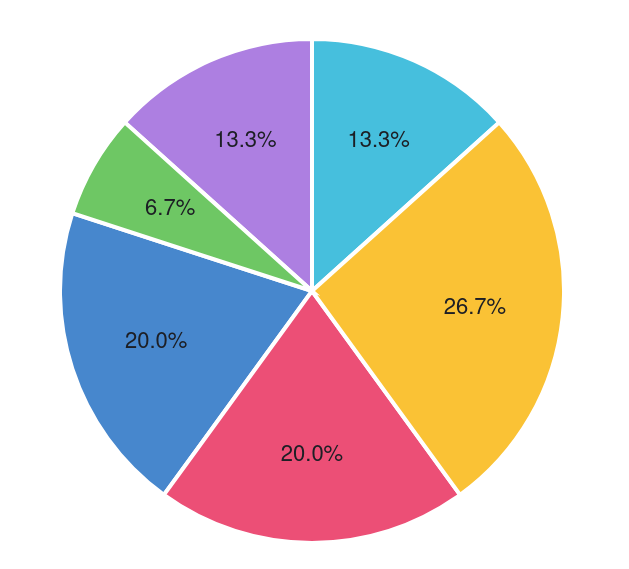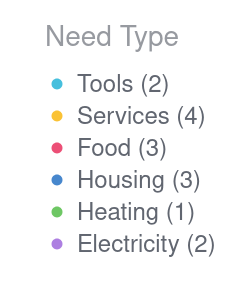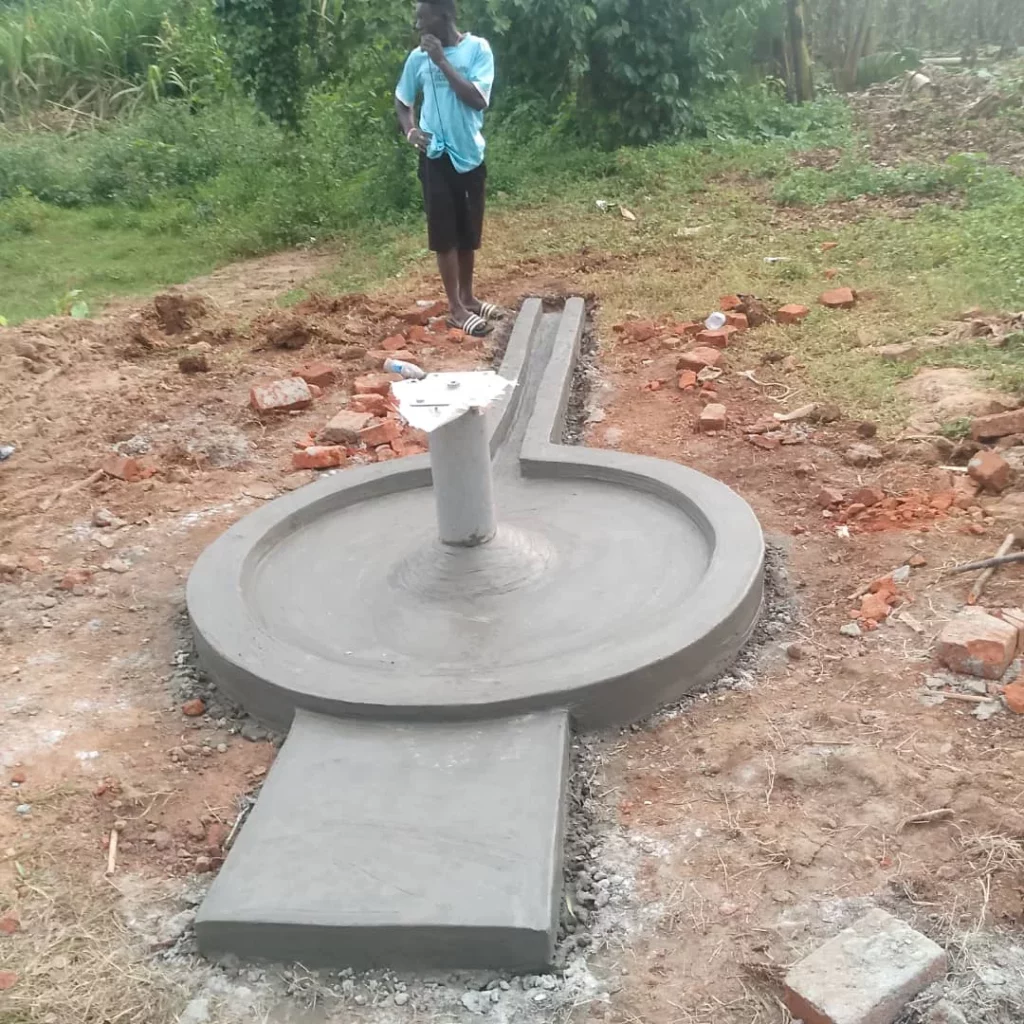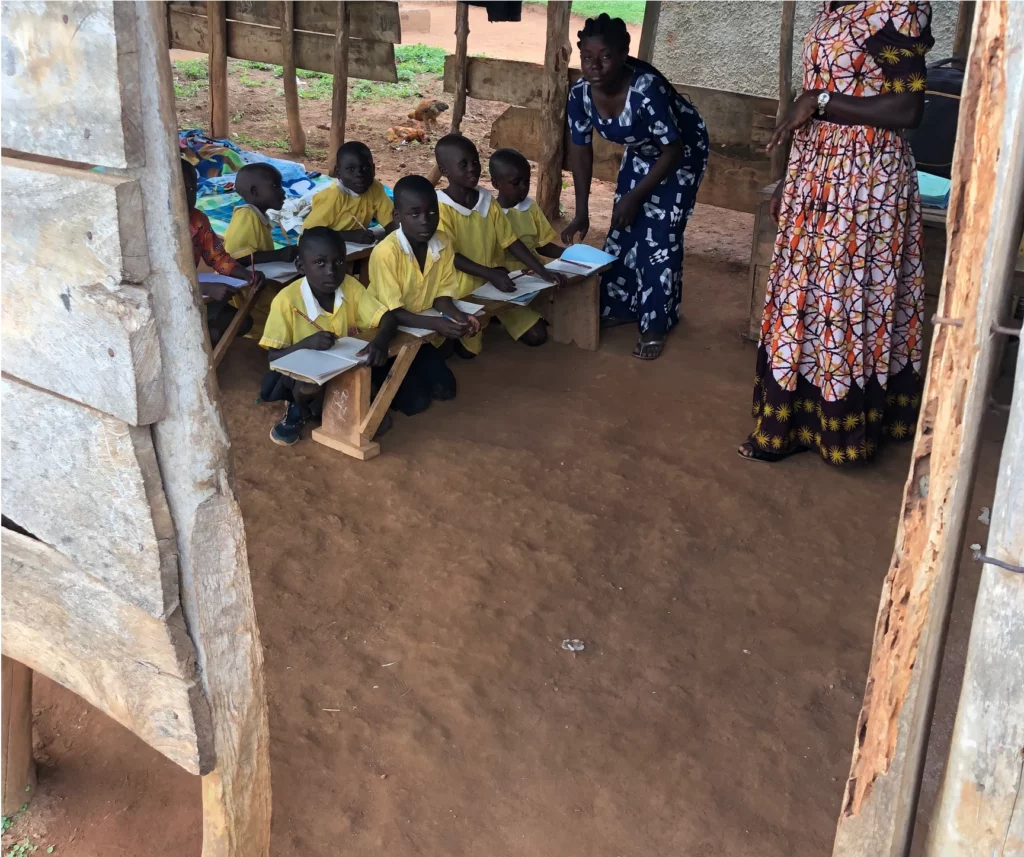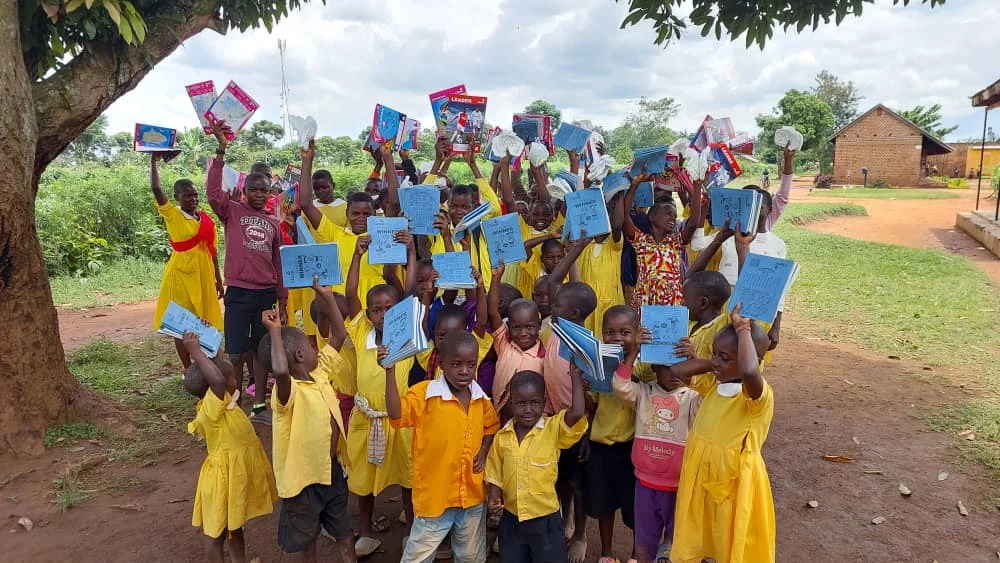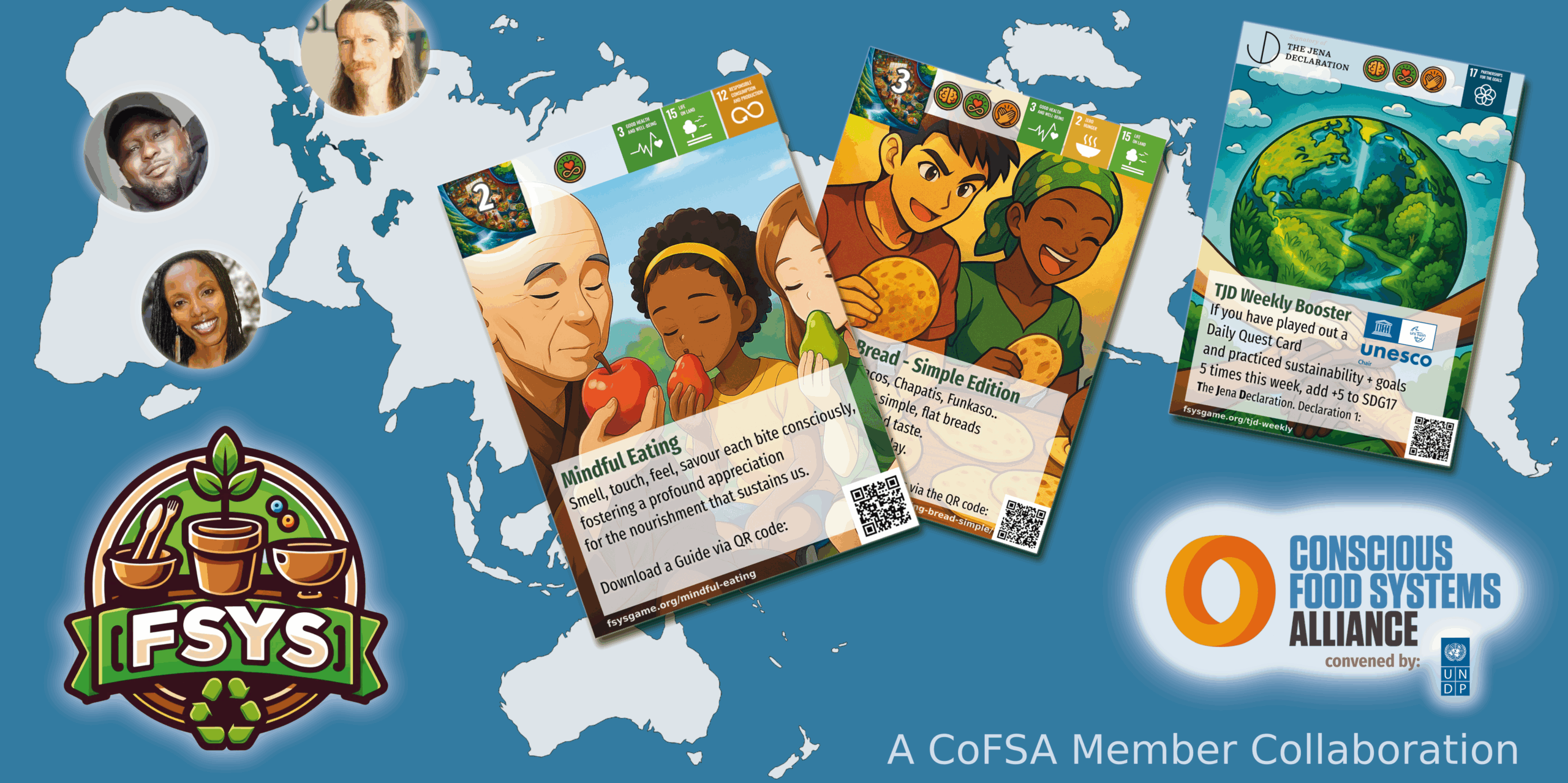
A Regenerative Food Systems Trade Card Game Grows from a CoFSA Collaboration Across Countries and Continents
How can we make the daily, weekly, and monthly Practice of regenerating conscious food systems and the SDG’s as engaging as an adventure game, as joyful as an offline card game, and as inspiring as an epic narrative, while delivering measurable results for sustainable development?
How can we invite grassroots participation in the open, cooperative development of this educational game, transcending national and continental borders?
Three members of the Conscious Food Systems Alliance (CoFSA) convened by UNDP, based in Kenya, Nigeria, and Germany, are collaborating with a diverse consortium of value aligned partners to explore these quest(ion)s with hands-on prototypes.
Table of Content
| Introduction |
01 |
Listen
|
| Conscious Allies on the path |
02 |
Cooperate
|
| Food System Card Design & the Game |
03 |
Play & Create
|
| Open-Source Sovereignty |
04 |
Open
|
| Open Finance & the Economic Support System |
05 |
Support
|
| Eco-Social Innovation |
06 |
Innovate
|
| A different world view map |
07 |
Look
|
| Epilogue |
08 |
Learn
|
Introduction
We met during the June 2025 Conscious Food Systems Alliance Gathering – organized by the CoFSA secretariat, hosted by the United Nations Development Program (UNDP). CoFSA members Samantha from Nairobi in Kenya, Ibrahim from the City of Jos (J-Town) in the Plateau State of Nigeria, and André in the documenta City Kassel within the forest-dense region of Hesse, Germany.
As it goes and flows during Zoom Gatherings, we linkedin, followed each other’s streams, and found resonance in our specific work fields intended to support the regeneration of our interconnected food systems.
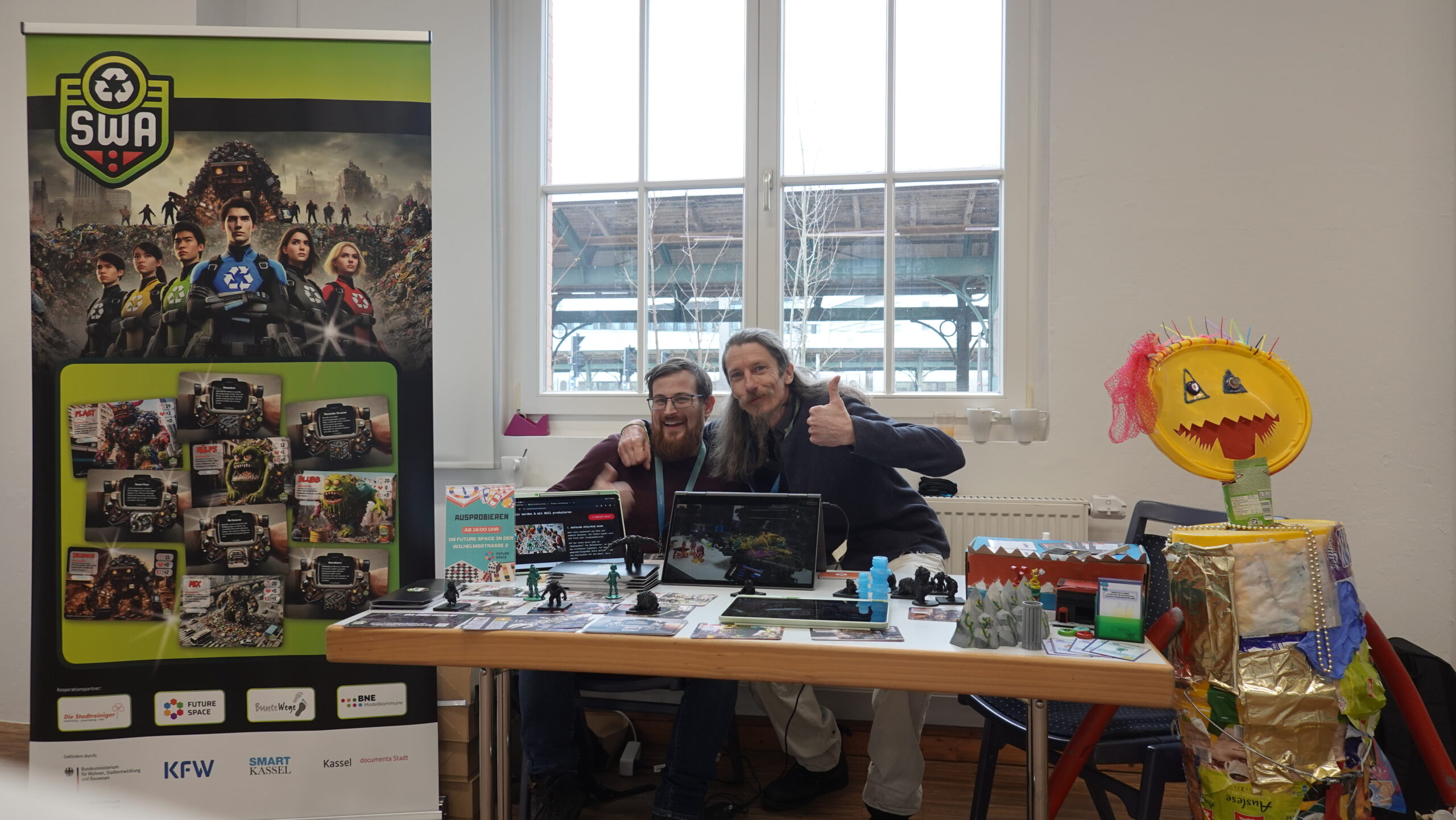
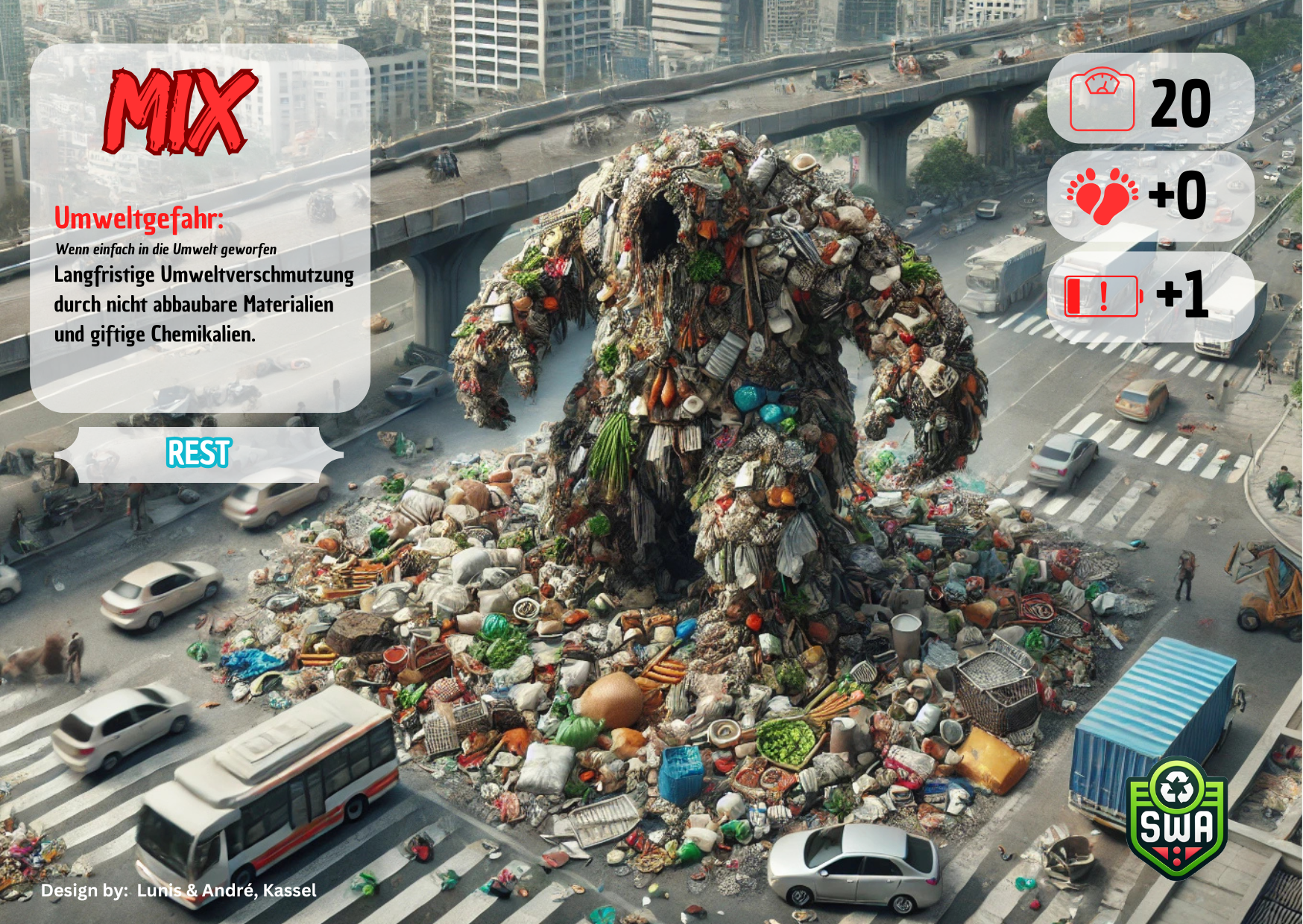
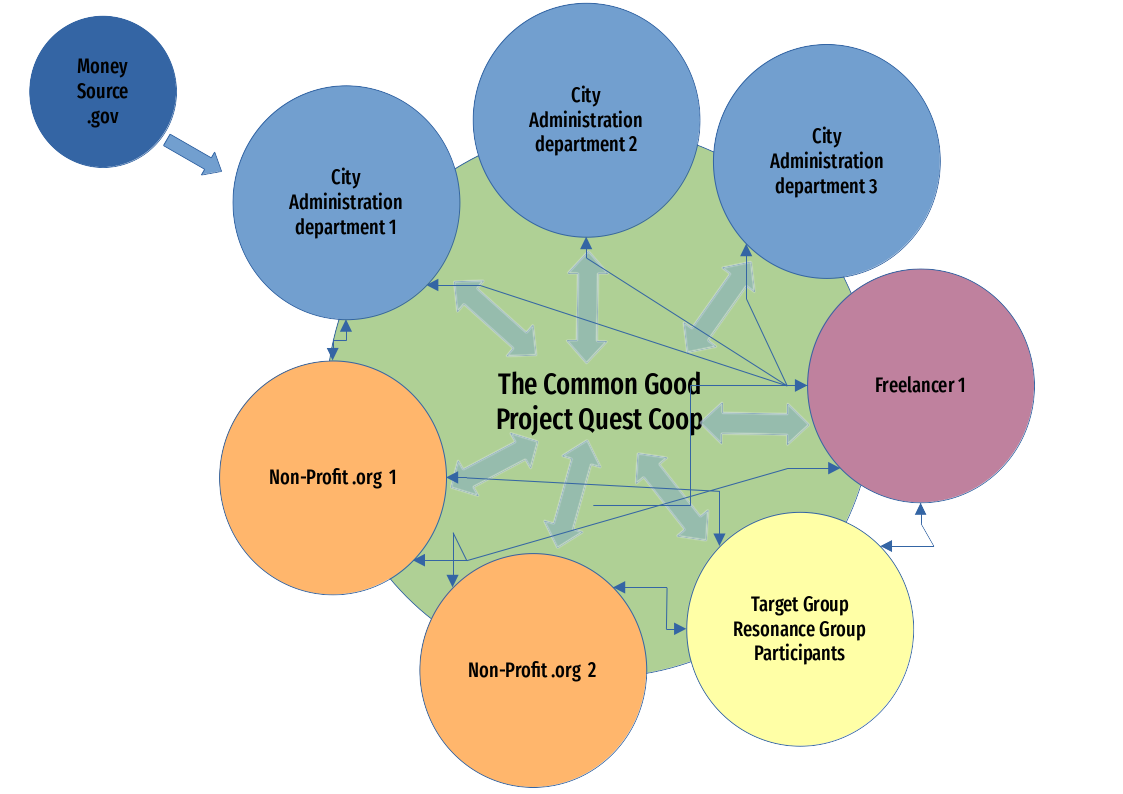
Living Lab Organigram of the multi-stakeholder collaboration network who created The Smart Waste Agency Game (the project in the center) Field tested in a 9 month Pilot in 2024.
André Boeing in Germany had just come out of a year-long Expedition into the Wastelands, where he met hungry ghost waste monsters and the young agents of the Smart Waste Agency, recycling the waste monster mass back into the Great Circular.
The narrative Game World The SWAG had been co-created by a multi-stakeholder collaboration, including young people, to teach about different waste types, recycling methods, and circular principles in an engaging analogue card- and tabletop game. André served as a Creative Producer & Facilitator of the Multi-Stakeholder Network.
The playful nature and co-design process showed great impact resonance with youth and adults alike, and a successful Open Educational Resource (OER) has been released to the Commons—free to use, remix, build upon, and share—funded by the German Ministry for Urban Development and Smart City Kassel department, documenta City of Kassel.
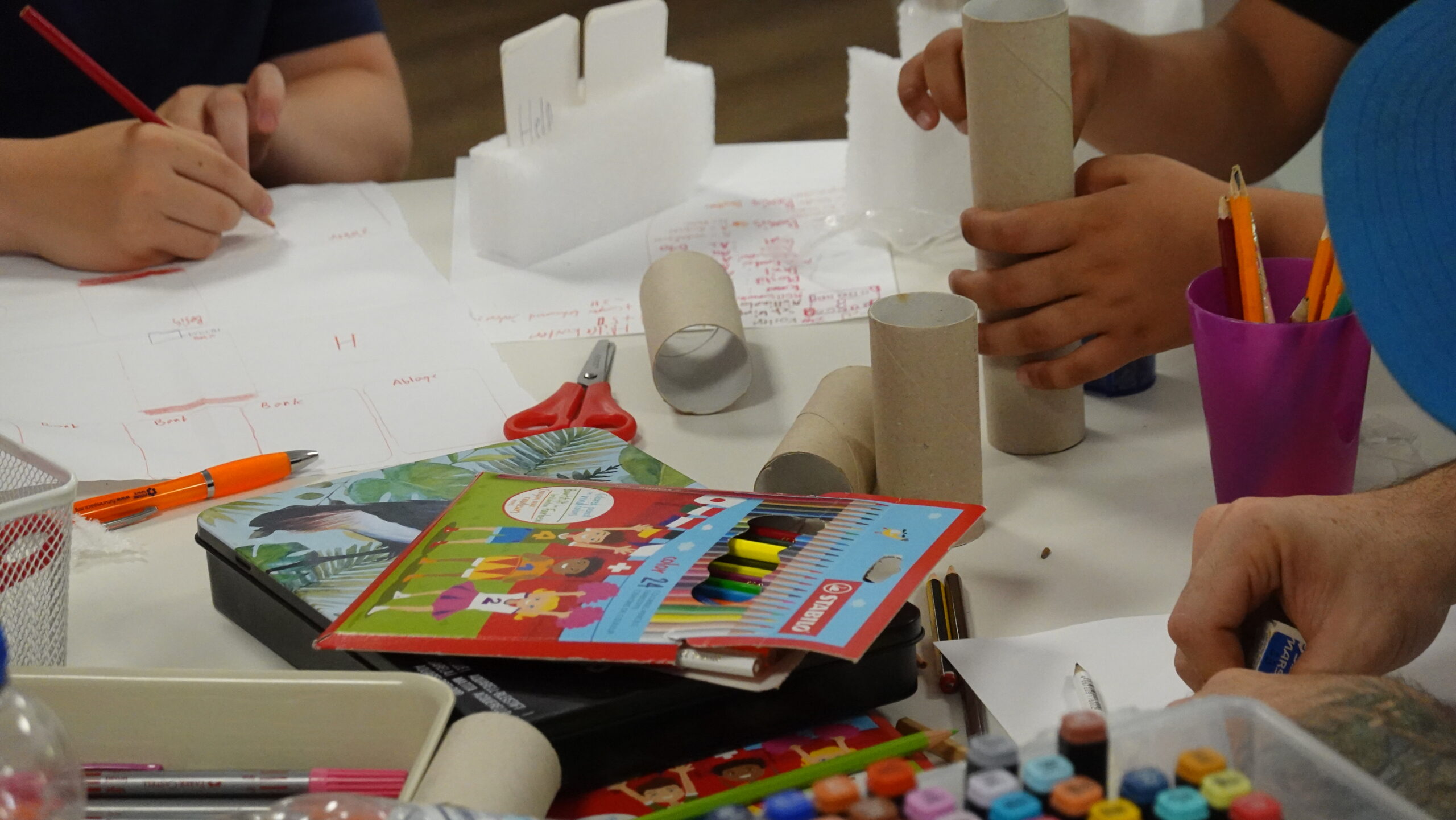
SWAG Cards + Material Downloads + a self paced Course in Card Design
Open Educational Resources under a Creative Commons License
www.the-swag.eu
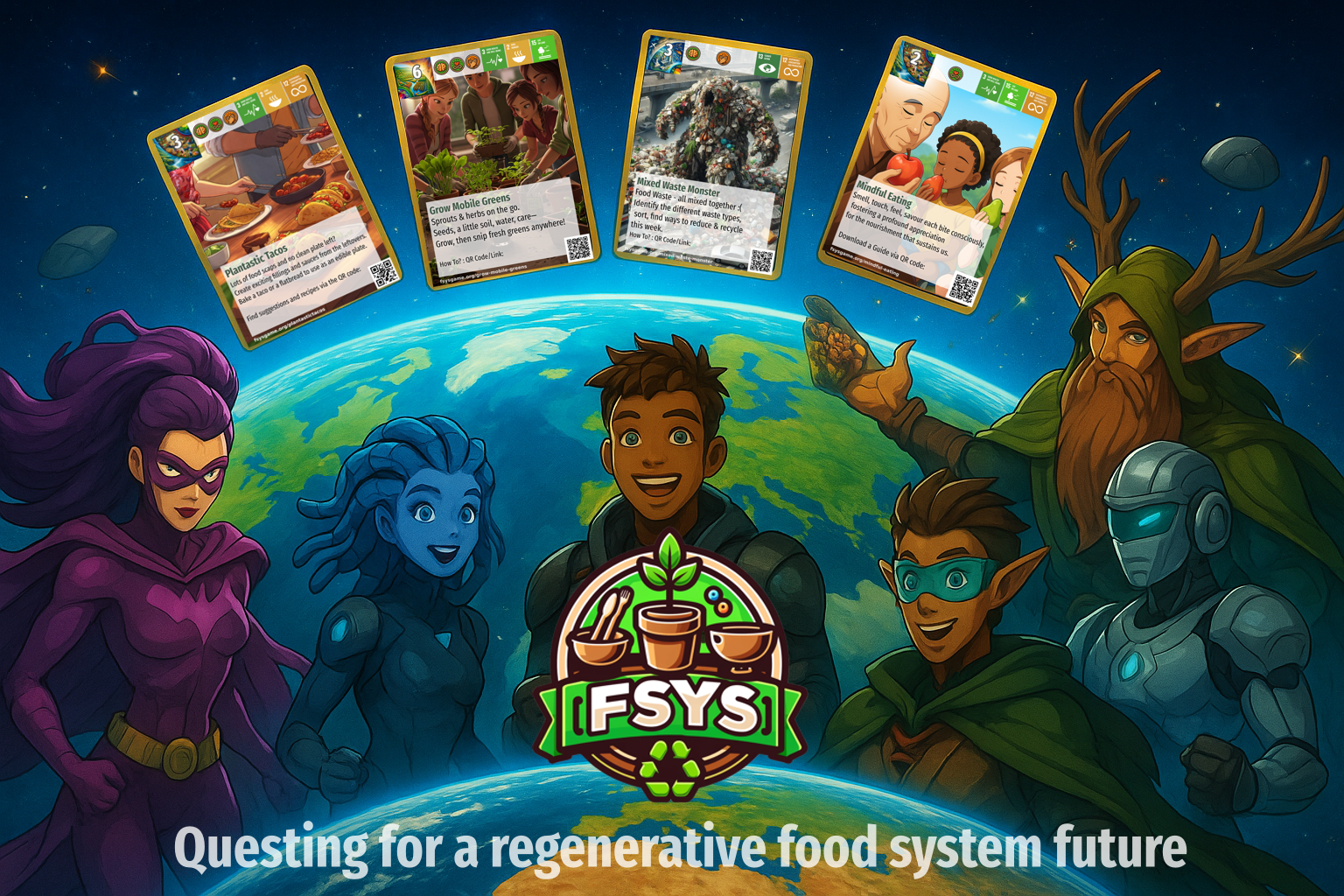
Re:gen Fsys, the regenerative food systems Collectible Trade Card Game (TCG ) became the next project in May 2025, using the experience gained from the open multi-stakeholder pilot of the waste project in 2024 —this time in a multinational, intercontinental, “Planetary” approach.
www.fsysgame.org
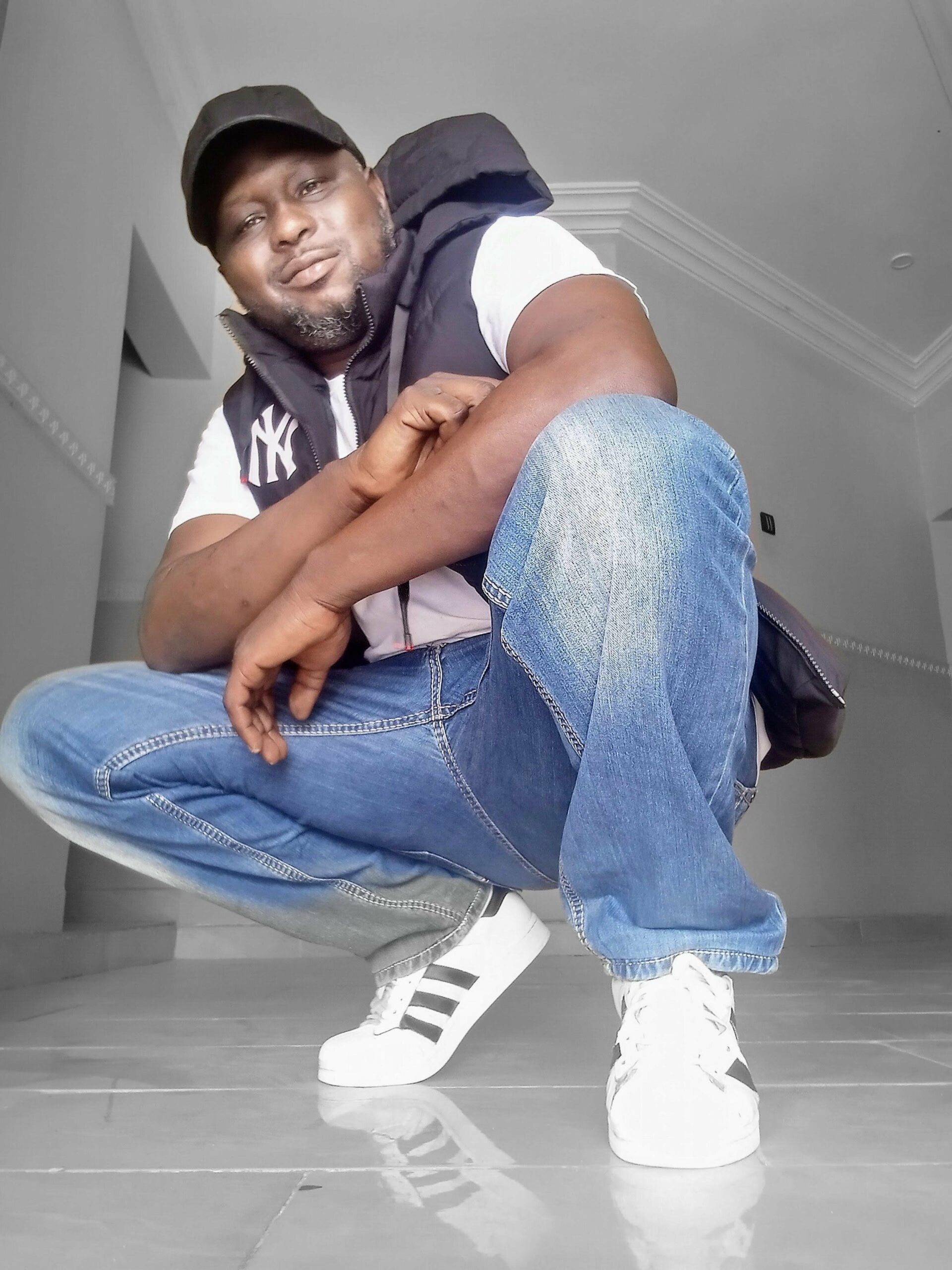
Ibrahim Gadzama in Jos, Nigeria, got deeply inspired to engage in regenerative farming practices during his time at the Young Farmers Club in his youth. Since his school days, Ibrahim had become a talent manager with nine years’ experience, a project manager at Great Farmers Multipurpose Cooperative Society (GREFAMCO), and a facilitator with the Jos Food System Alliance for the past two years.
Ibrahim shared sadly that he had seen the Young Farmers Clubs fade away, as the role of farmers became increasingly unpopular, associated with “a job for the poor” or the danger of brutal farmer/herder clashes amid the challenges of increasing climate change.
Ibrahim looked for a teaching tool that was as engaging as a modern game, with the potential to inspire a different narrative for the “Cool New Farmers Club”—where farmers are super-smart professionals who not only know how to regenerate the land and grow nutritious varieties but also promote and market super-designed ingredient solutions for fantastic dishes. He immediately resonated when he saw that the fsys card game, which breaks down learning into tiny, doable action quests, was exactly the teaching tool for regenerating the Young Farmers Club that he needed.
Ibrahim on Linkedin
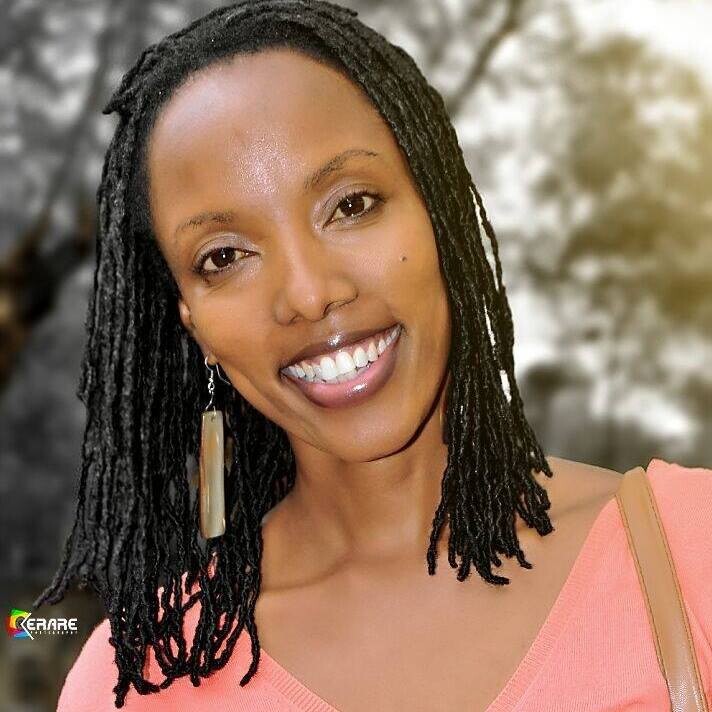
Samantha Waki in Nairobi, Kenya, works with organizations and communities to deliver value to consumers at the base of the pyramid, with a special focus on empowering women and youth. Their role is to stand in the gap, working with organizations, communities, farmers, and stakeholders to co-create solutions that truly serve the people.
Samantha and her colleagues increasingly saw that the challenge is not just nutrition. It is access to the right information and nutrition products, and the power to make healthy choices, both for individuals and for the broader food system.
How can we grow and market more nutrient-dense products produced by farmers in ways that are regenerative and economically sustainable? How can we engage the public and farmers in gaining knowledge that inspires action and shifts behavior toward healthier, more sustainable choices for both people and ecosystems? How can we energize youth and young people to take charge and lead the nutrition conversation in ways that are fun, accessible, and interactive?
Ktopia’s approach checked all the boxes. This tool is accessible to a wide range of participants and can embed research indicators for evaluation, turning learning into a practical, interactive experience. Games, challenges, and creative activities can give young people a sense of ownership and leadership, making nutrition education both empowering and enjoyable.
Samantha and her team are excited about their partnership with Ktopia in delivering value, collaborating with consumers, farmers, and stakeholders to co-create solutions that empower communities to take control of their food systems.
Samantha on Linkedin
And so, the three of us—members of the Conscious Food Systems Alliance—joined on common ground and soil — and have since collaborated on organizing pilot field tests and experimenting with new ways of working together in an open consortium.
Throughout this collaborative journey, we exchange ideas, explore and deepen our shared values, listen to and learn from one another, chat almost daily, and meet regularly in online follow-up gatherings.
back to Table of Content
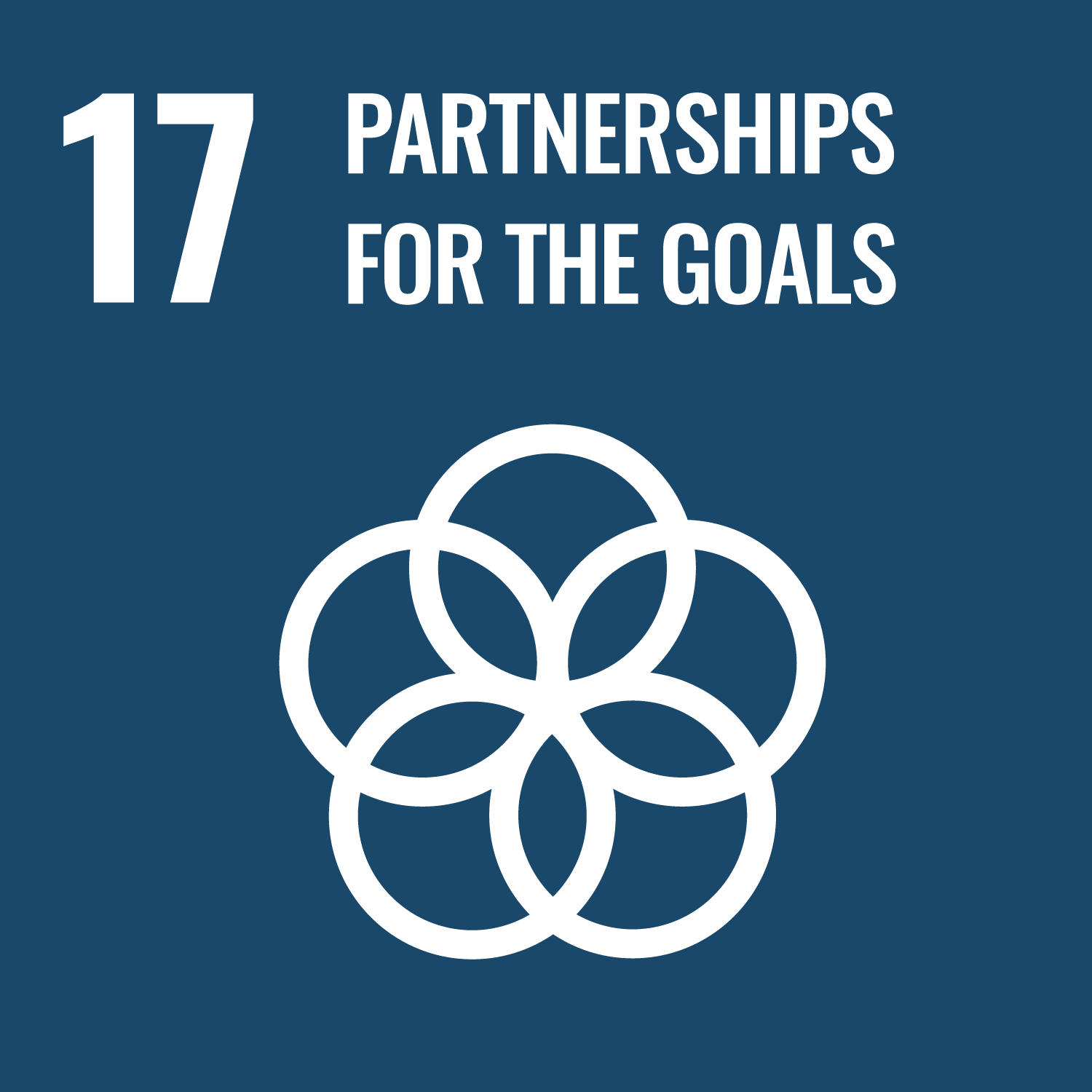
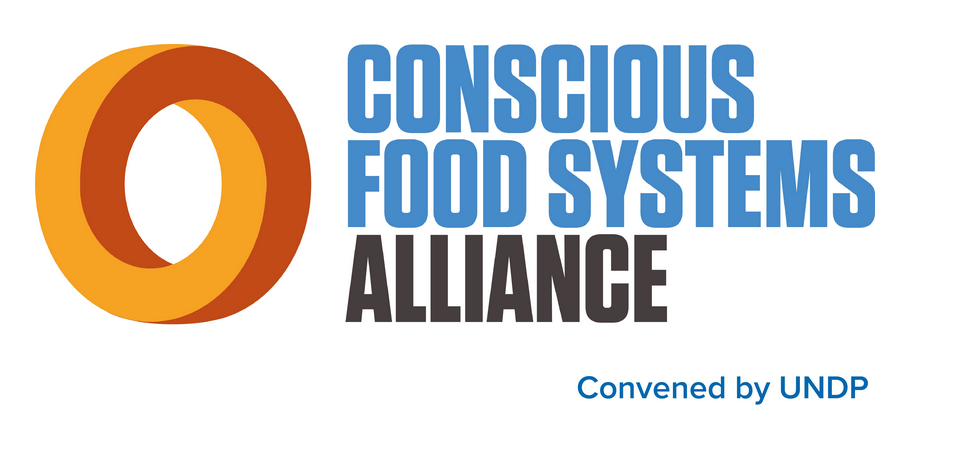
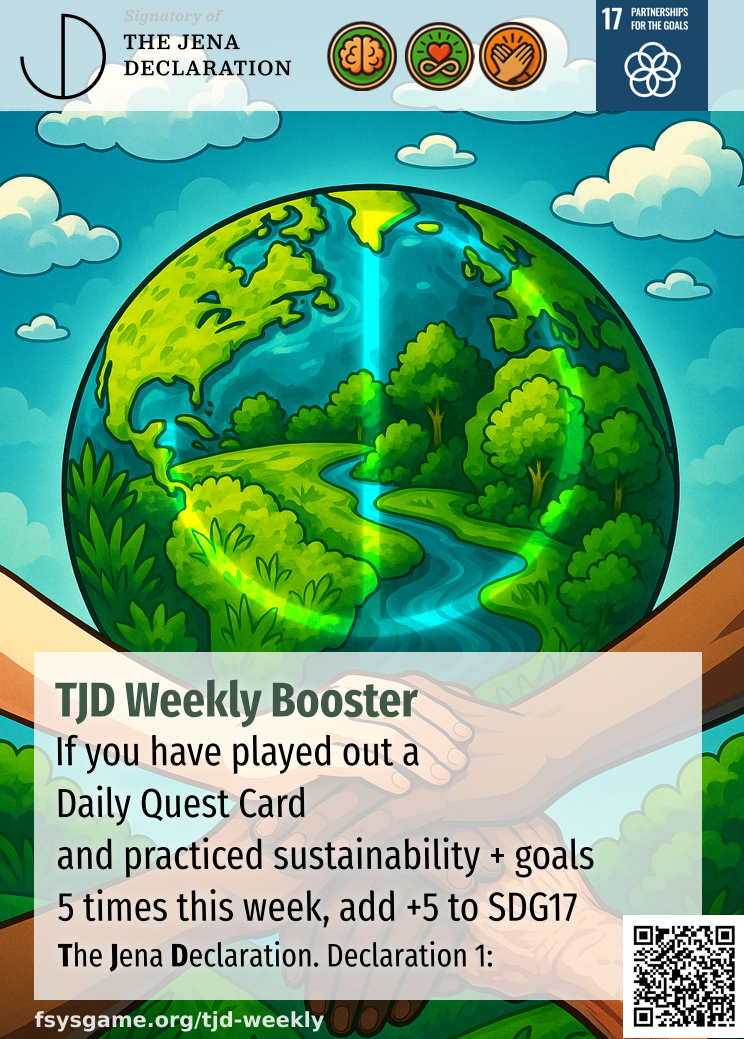
Allies on the path…

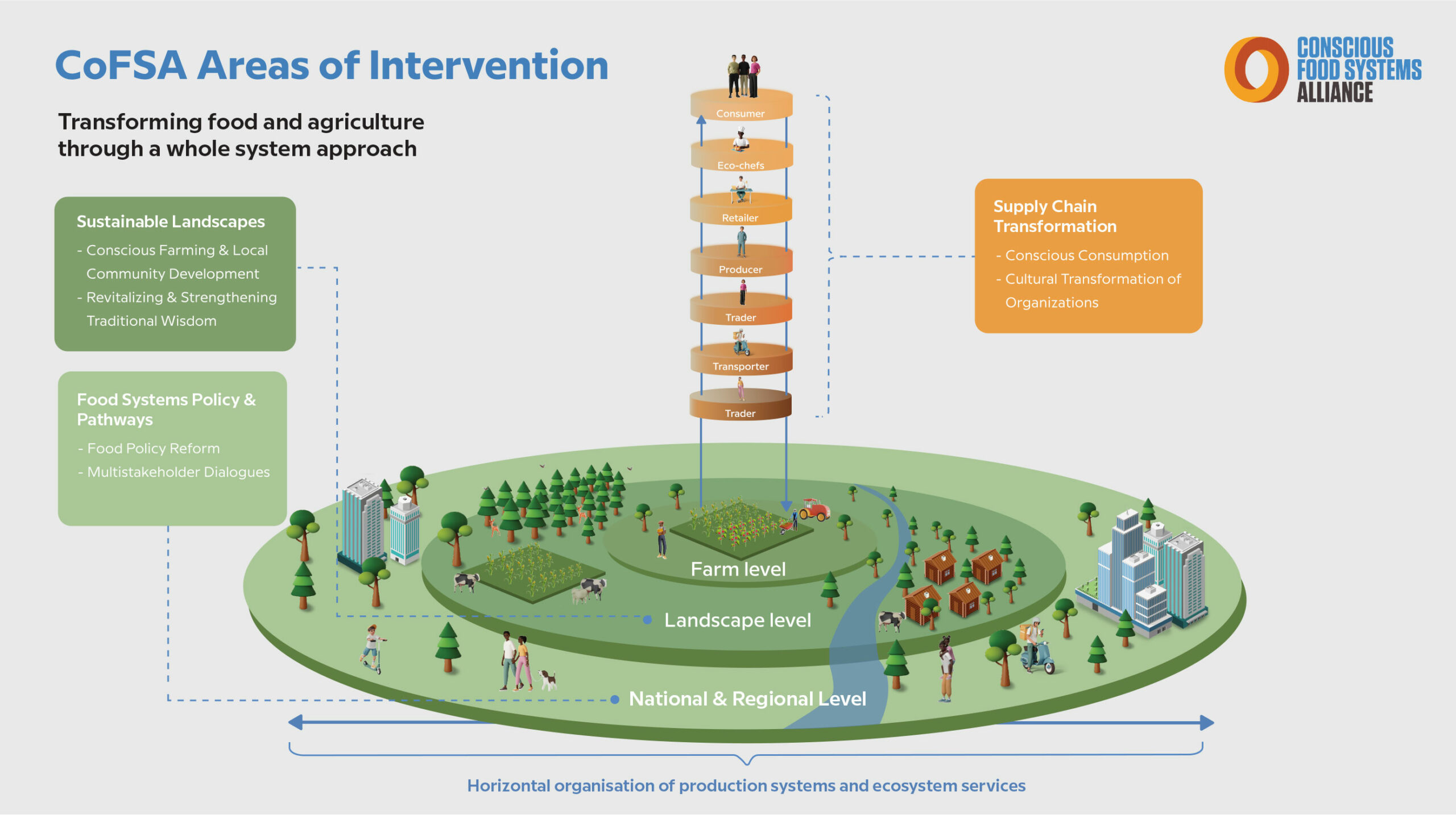
At CoFSA we use a whole system approach visualization of the layers in food systems we are dedicated to transform — especially in our CoFSA track of “Multi-Stakeholder Dialogues and Collaborations”.
As this Circle is very helpful for navigating in conscious food system project development, we had to simplify it for our gamified, educational use-case to ensure accessibility.
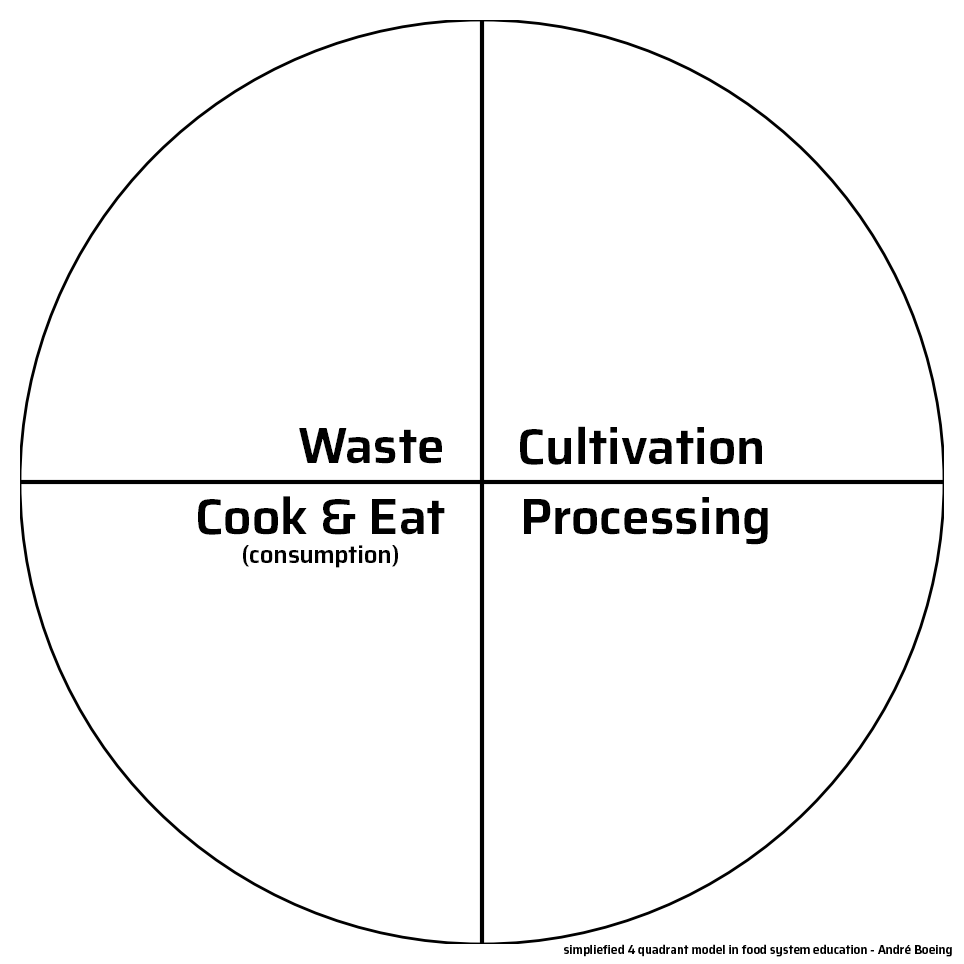
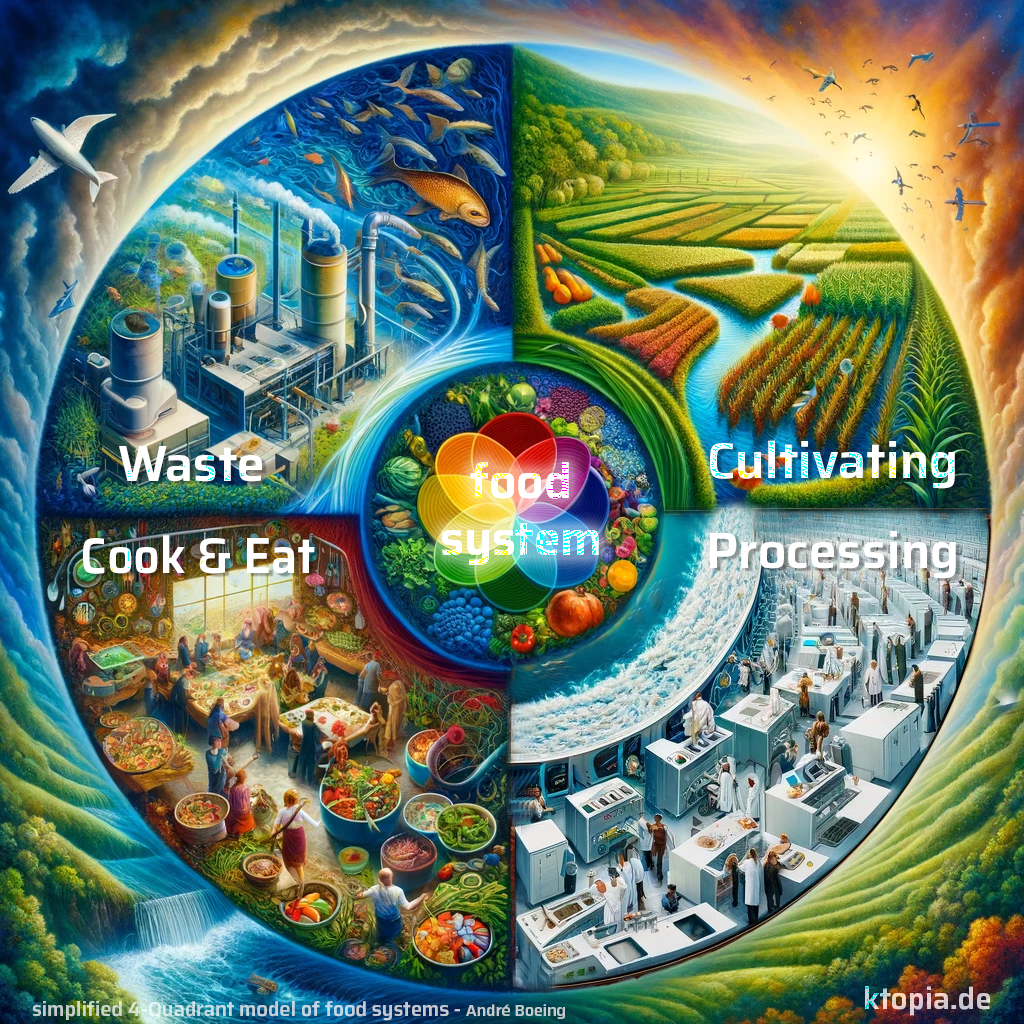
One, where all the food grows.
One, where it is being processed.
One, where it is being cooked and eaten.
and One, where all the waste goes:
Cultivating > Processing > Cook & Eat > Waste
A Cycle…

The first value in each cards top value row indicates the Quadrant, the card is being played out, and the complexity of the “Hands on mission”: The Quest.
from: https://consciousfoodsystems.org/about-us/
“Creating regenerative systems is not simply a technical or social shift—it must go hand in hand with a shift in how we relate to ourselves, each other, and the planet.”
—Daniel Christian Wahl
Deep Collaboration: Why it’s needed for Resilient Food Systems
Article on UNDP

The Organic school-meal Provider “Biond”, located in Germany, supported the fsys game project with a kickstart Fund of 1000€ last May as they resonated with the fsys mission.
Biond will also provide it’s logistic infrastructure to roll out a first Print Edition of our Food Systems Trade Card Game through their School cantinas all over Germany. With each healthy, tasty school Meal, students will receive one Booster pack from our Game. Quest Cards packed with Realworld actions.
www.biond.de
The Jena Declaration (TJD) at the UNESCO-Chair on Global Understanding for Sustainability
The Jena Declaration
“Our connection with nature, changes in the way we live. Our slow progress toward rebuilding, are not sustainable practices.
WE rely upon government to take action. But government’s approach sustainability policy requires too much time. The goals set forth by the United Nations —the Sustainable Development Goals, the “SDGs”—will fail if we do not become involved as individuals.
Each of us must take action. The Jena Declaration invites you to do so. It provides ways that everyone can play a meaningful role, and supports your efforts.”
We especially take this part literally: “Everyone can PLAY a meaniful role” 😉
Meaningful, sustainable change can only be achieved if every person on the planet changes their everyday routines, practices, and mindset. This must be true in business, government, school, and at home.
Individually and collectively, we must decide to live our lives in a deeply sustainable way.
Solutions must grow strong from the bottom up – created and acted upon by individuals and communities. The collective power of many local solutions brings a positive global change.
If we wait for change from the top-down, it will be too late.
To change ways of life for sustainable futures requires creative solutions. It calls for innovation from the arts, the humanities and the minds of civil society.
We must actively design this future for the benefit of all.
As Dr. Martin Repohl, Project Coordinator of The Jena Declaration at the UNESCO-Chair on Global Understanding for Sustainability reached out for André on the reflecta network in Mid June 2025, we immediately resonated and signed the Declaration which sings to the same themes, we hold dear.
“The Jena Declaration is now a consortium of partners. It includes many UNESCO Chairs, relevant international organizations and academies of sciences, arts organizations and networks, business companies, civil societies movements, and many individuals, too.”
As we crafted our Memorandum of Understanding (MoU) in a conscious 14 day process with the compassionate, passionate and dedicated UNESCO Chair Prof. Dr. Benno Werlen, we became active Project partners of TJD.
But if the social product for the commons is the fsys game, who is the organization developing it and representing it as an entity—in, for example, an official MoU? As a loose initiative, we lack a legal body or formal incorporation. However, we do have an existing ‘narrative container’—previously in the background—that André has been working with.
Ktopia is a virtual, planetary Ecotope Cooperation — a living lab, an imaginary ecoregion, a mythology, and a real fiction with no legal body. We connect and gather as consortia of value-aligned partners, working in agile project circles for a season.
Ibrahim and André identified as “Ktopians” – as “neighbors in Ktopia” and joined the newly formed organization and imaginary Eco-region. Samantha continued to represent her organization, which is now in a conscious MoU process with Ktopia.
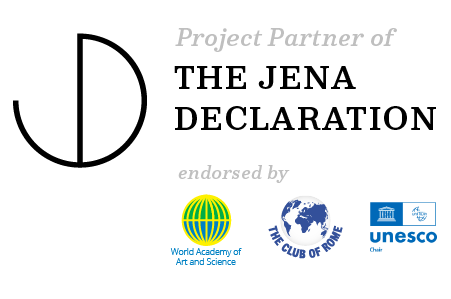
www.thejenadeclaration.org

TJD about Ktopia on Linked In August 2025
🎮 Welcoming a New Partner: Ktopia Gameworlds 🌱
We’re very proud to announce Ktopia as a new Partner of The Jena Declaration (TJD)!
Ktopia shows that games are more than entertainment—they are powerful tools for learning, transformation, and collective imagination. Through narrative-driven, analogue-digital game worlds, Ktopia empowers young people to explore complex sustainability challenges and co-create solutions in playful, collaborative ways.
From Europe to Africa, Ktopia facilitates diverse partnerships to develop open-source card games that spark dialogue on regenerative food systems and sustainable futures. By blending storytelling, creativity, and hands-on action, Ktopia’s gamified approach fosters deep engagement, critical thinking, and intercultural understanding.”
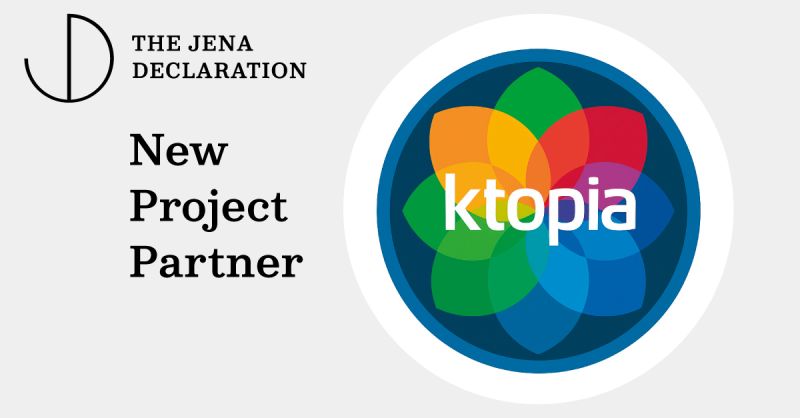
With CoFSA we found Alliance in Regenerating food systems within the Networks of UNDP
With TJD we found a partner and partner consortium within the Networks of UNESCO
Two branches of our United Nations which increasingly renews and regrows in multi-stakeholder grassroot collaborations among all regions and cultures of our one shared home: our Planet.
Many UN branches also increasingly include the voice and wisdom of Indigenous Cultures into their everyday practices — from policy to programs. We happily support this transforming movement within our United Nations towards a diverse, inclusive, ecosocial, Planetary Service Organization — bringing active hope into our age of Polycrisis.
back to Table of Content
Lets get back to our Social Product, the card game, card design and value system. This card has been dedicated to the Alliance Resource by CoFSA for mindful eating – available as a Ressource on their website.
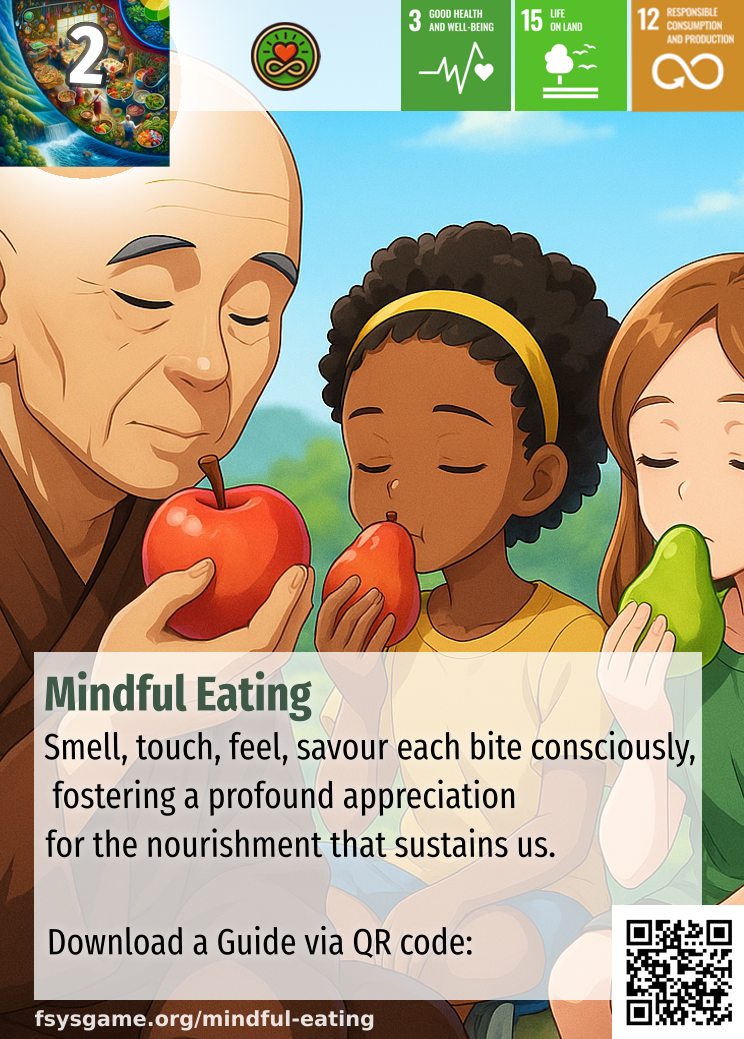
Mindful Eating
Smell, touch, feel, savour each bite consciously, fostering a profound appreciation for the nourishment that sustains us.
-
Q Points
-
T Points
-
SDG’s
-
Repeatable
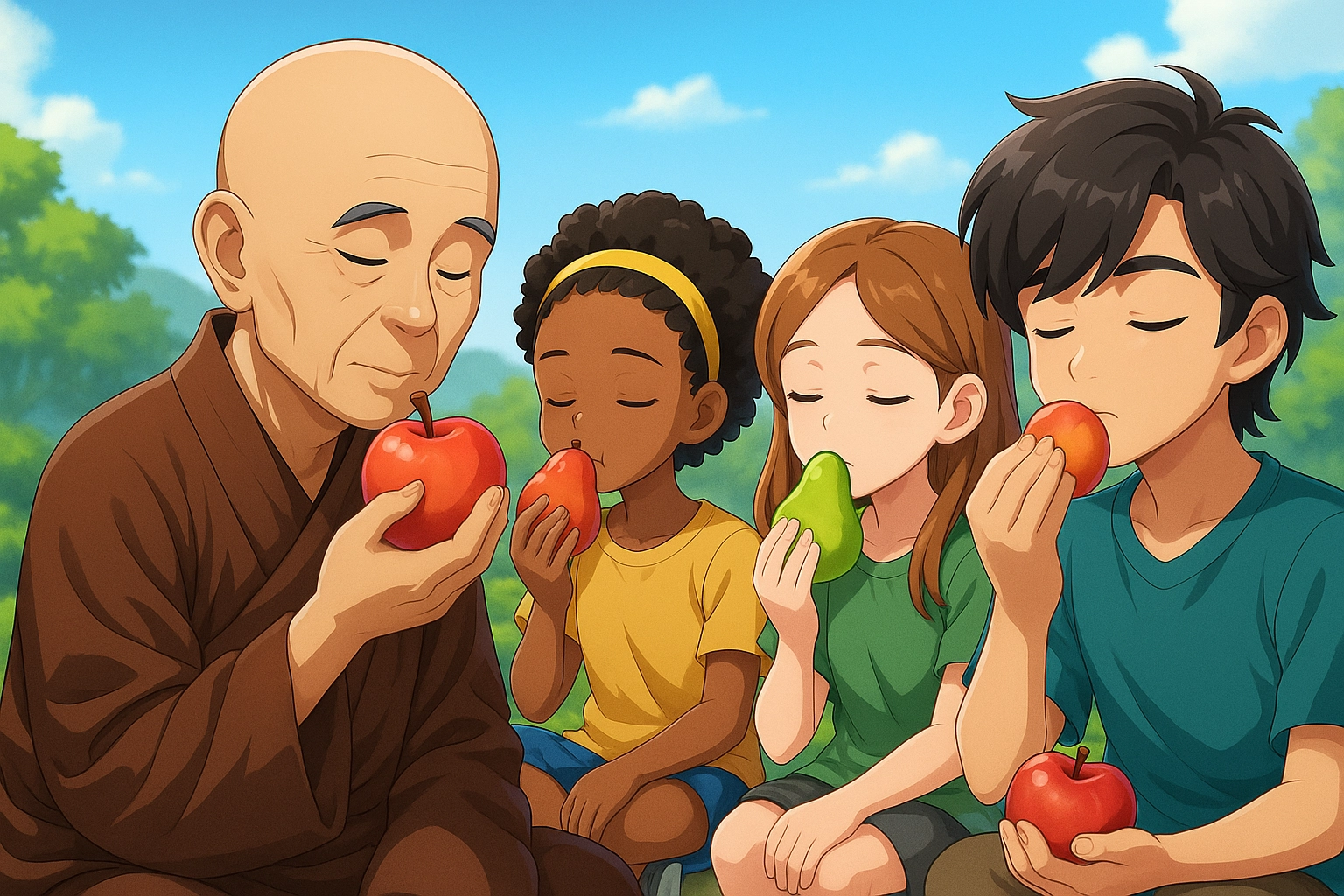

We play this Daily repeatable practice out in the Cooking & Eating Quadrant with little effort (2 points).
We nurture the Tenet of Consciousness in the classic
Head, Heart and Hands Pedagogy (the heart symbol)
We practice SDG’s 3, 15 + 12, Health and Wellbeing, Connecting with Life on Land and being Responsible in our Consumptions. We contributed to achieving the Goals with a tiny action – with playing out a Quest card.
Card Page, Teachers Guide, Video, CoFSA Guide
-
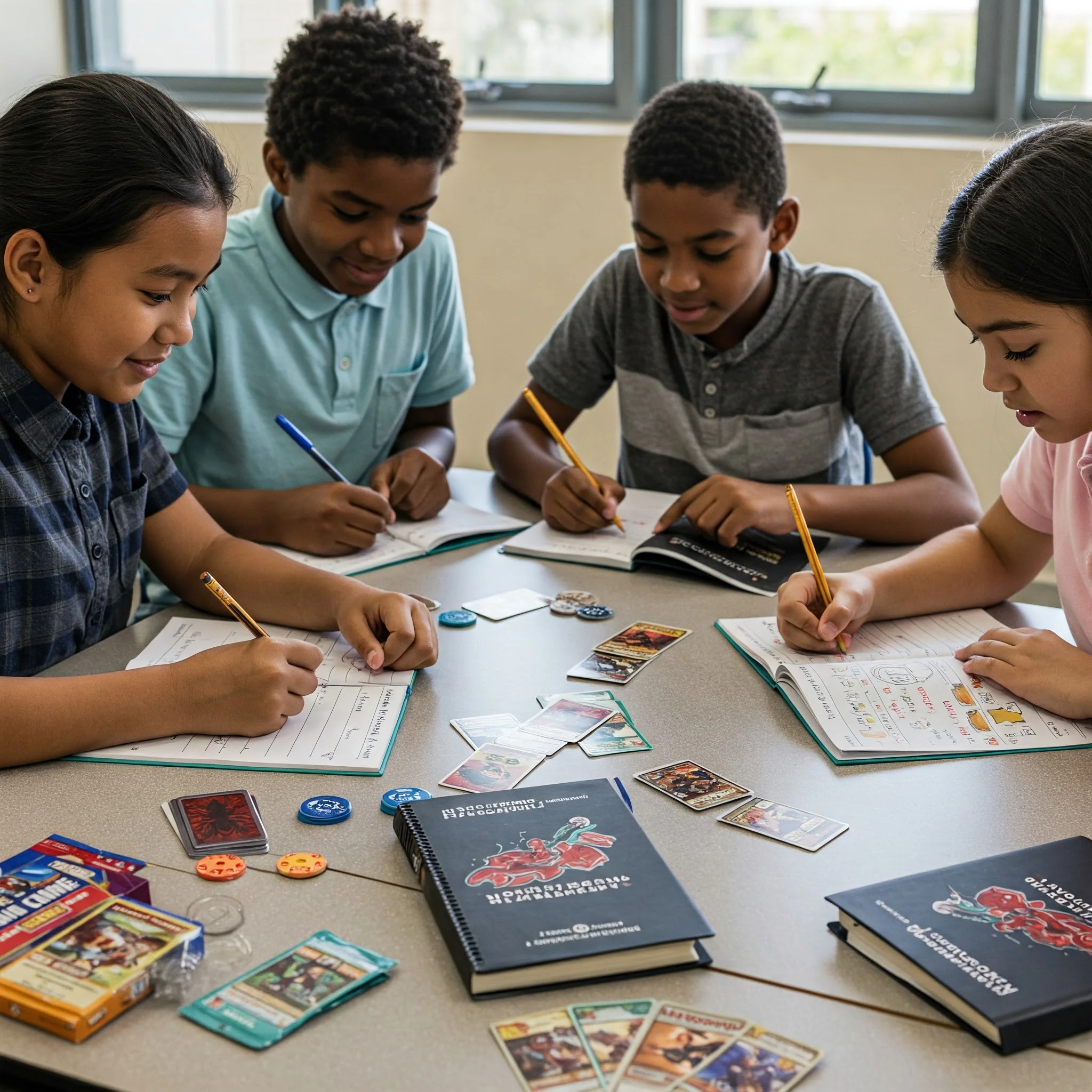
Every time we Players embarked on a Quest—taking real-world action—we tracked our progress in our Action Character Journal, the ACJ!
-
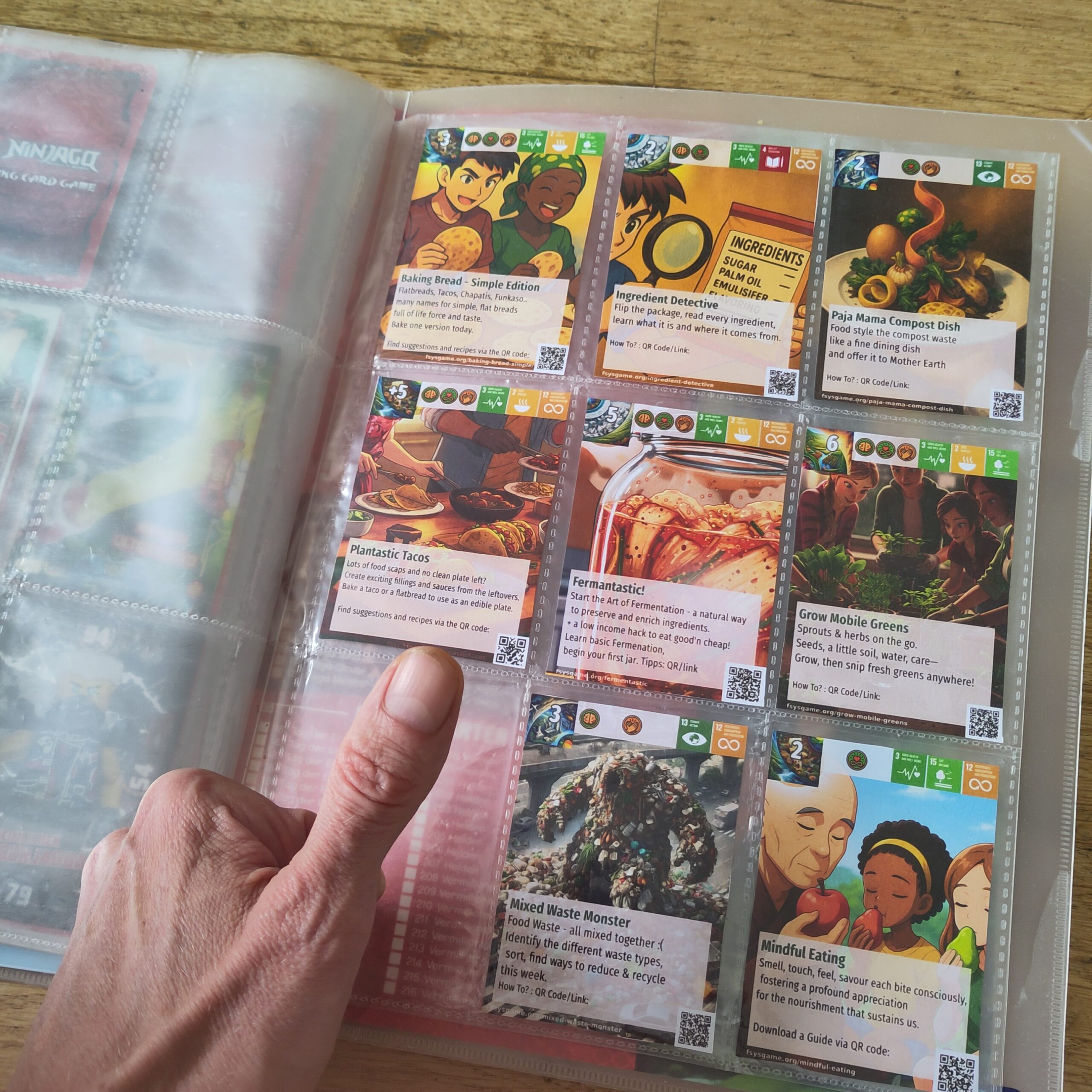
Since our cards follow the same format as global trading card game multi-billion $ giants like Pokémon, Yu-Gi-Oh!, and Magic, we can reuse and upcycle sleeves and collector books—reducing waste while keeping the fun alive!
-
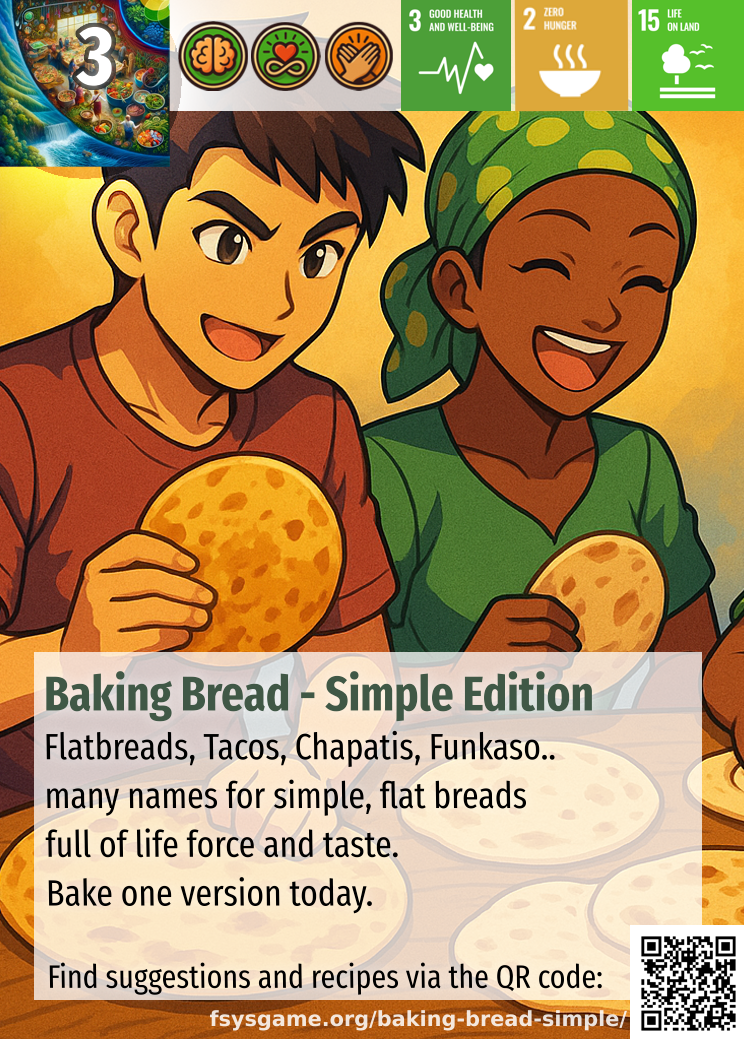
-
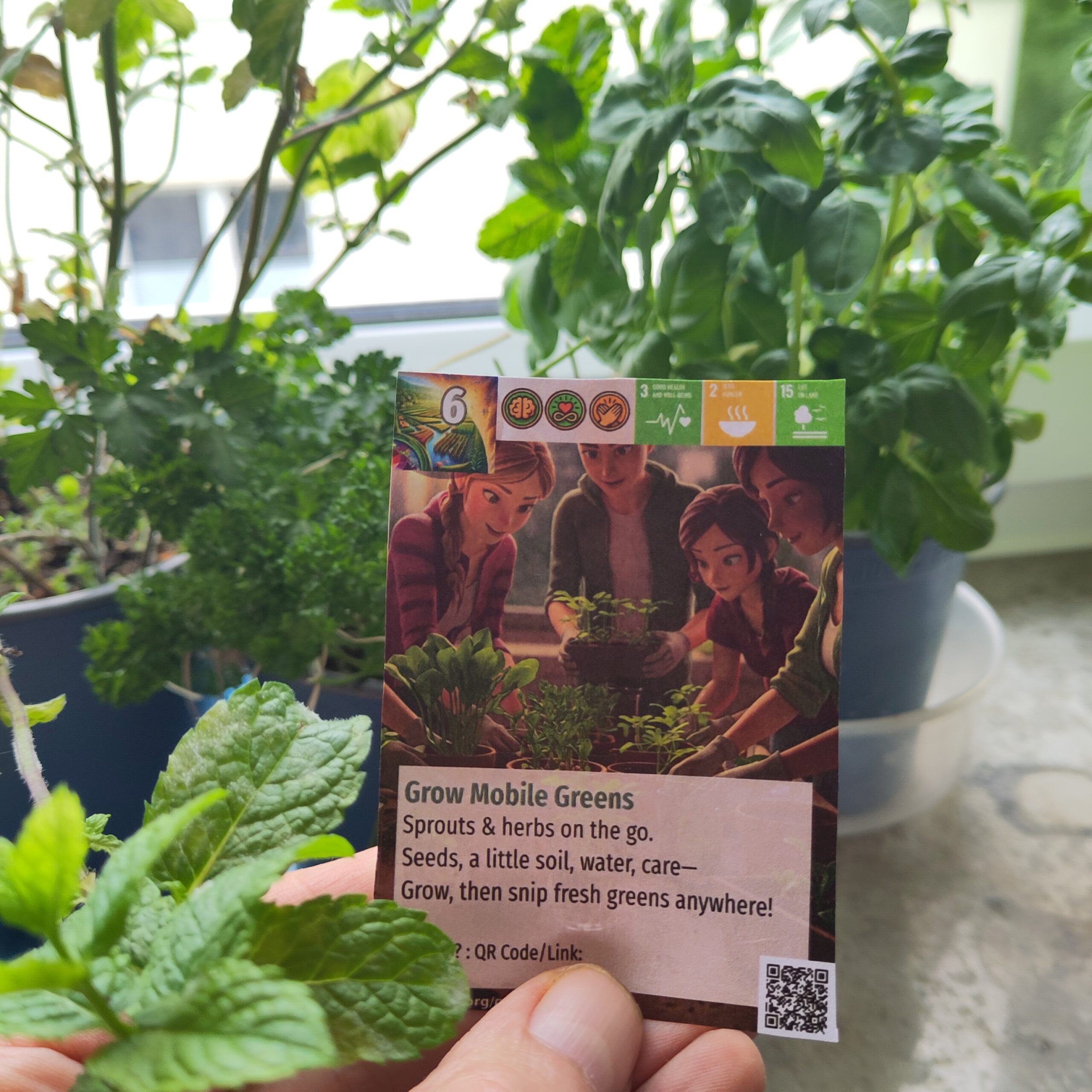
-
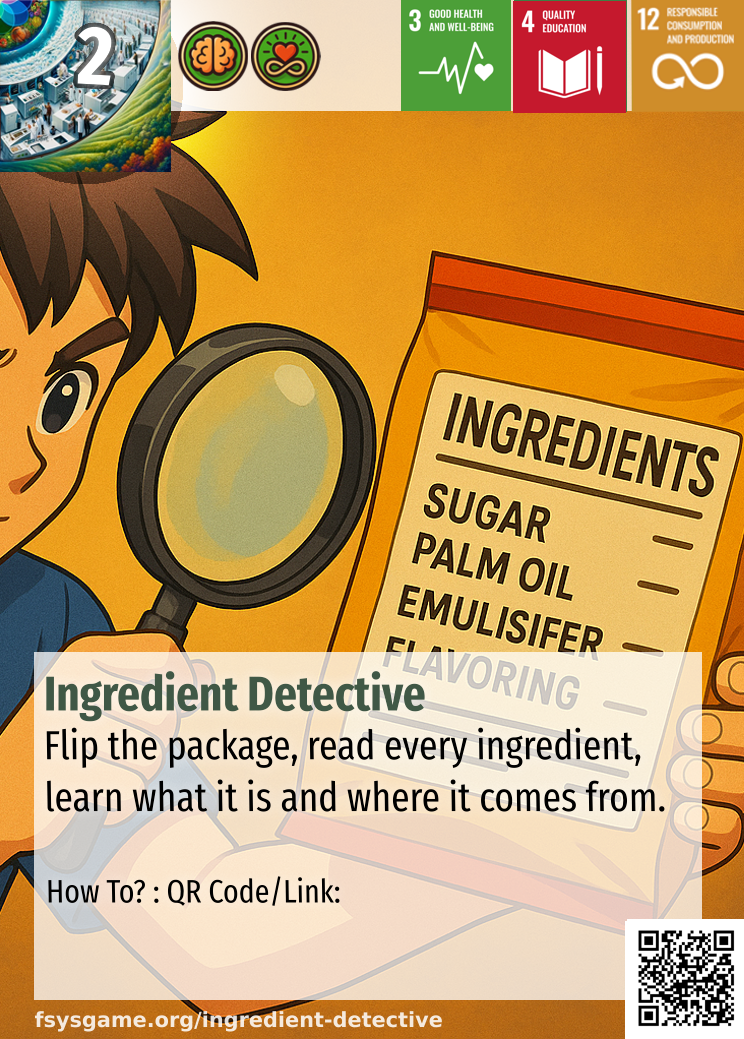
-
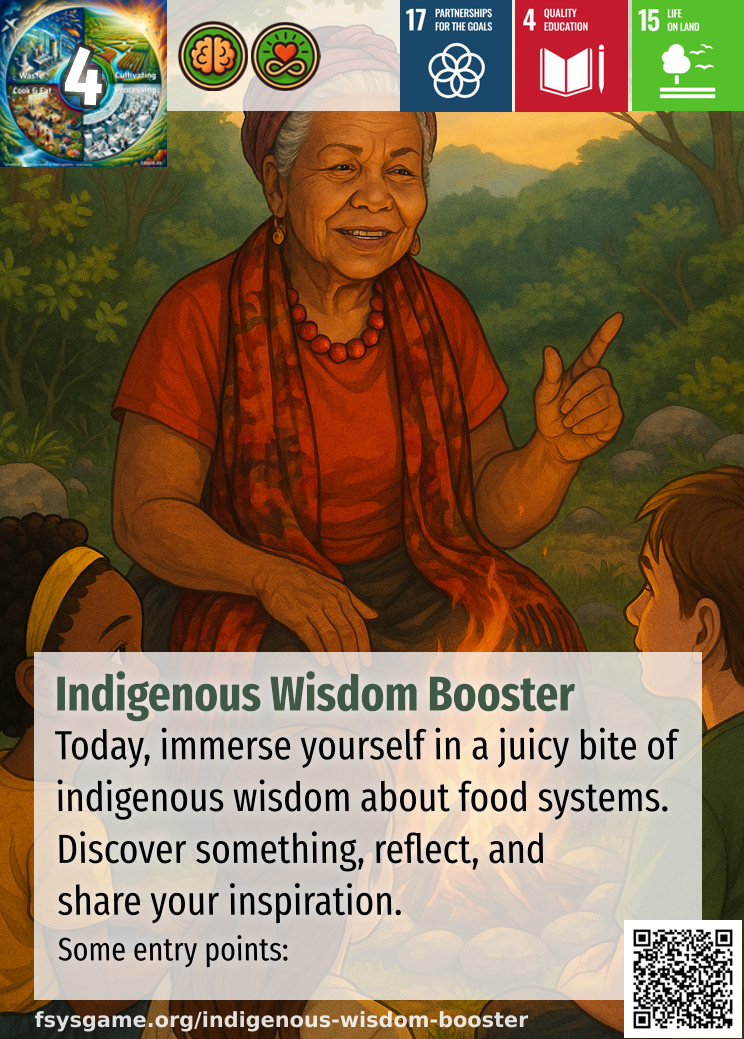
-

-
If we’re smart and played a few Quests this week, we can combine cards and unlock their boosts! That’s exactly what our TJD Weekly Booster does!
If you have played out a Daily Quest Card and practiced sustainability and the goals 5 times this week, add +5 to SDG17. The Jena Declaration
-
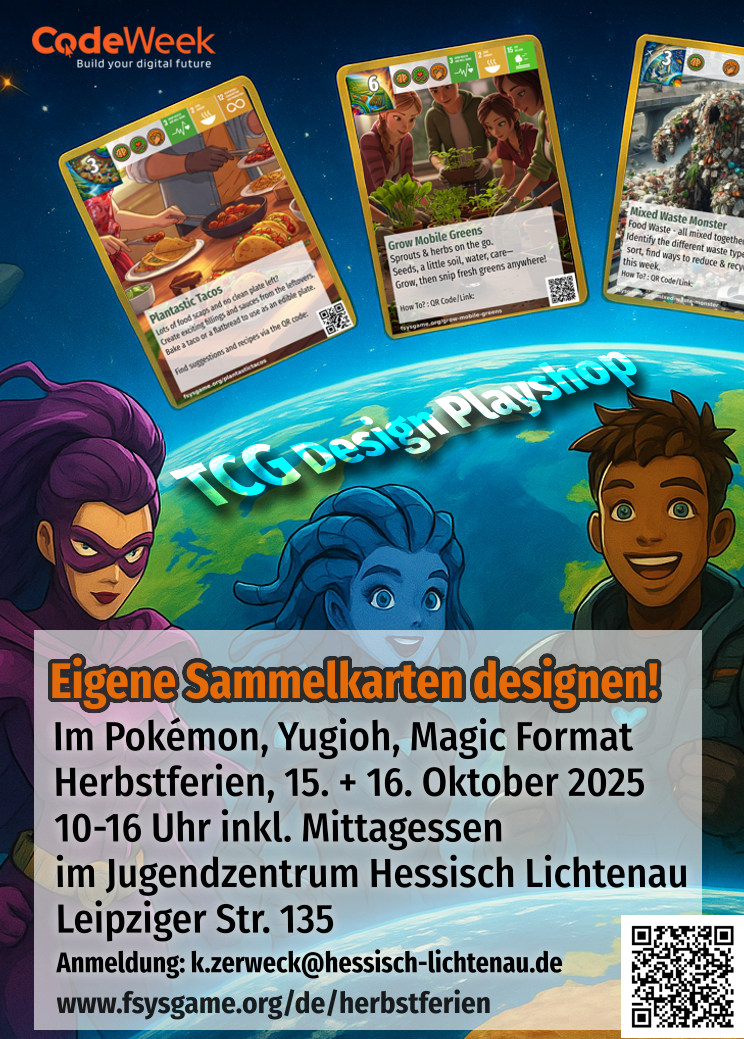
See more Cards
We are not designing for players, especially Youth!
We are designing with players, including Youth!
We are offering Playshops and share how to design cards from the Trade Card Genre, we feel so much affection for.
We use the free, Open-Source Photoshop alternative Krita.
Available for Linux, Windows, Mac OS —
a wonderful tool to be visually creative.
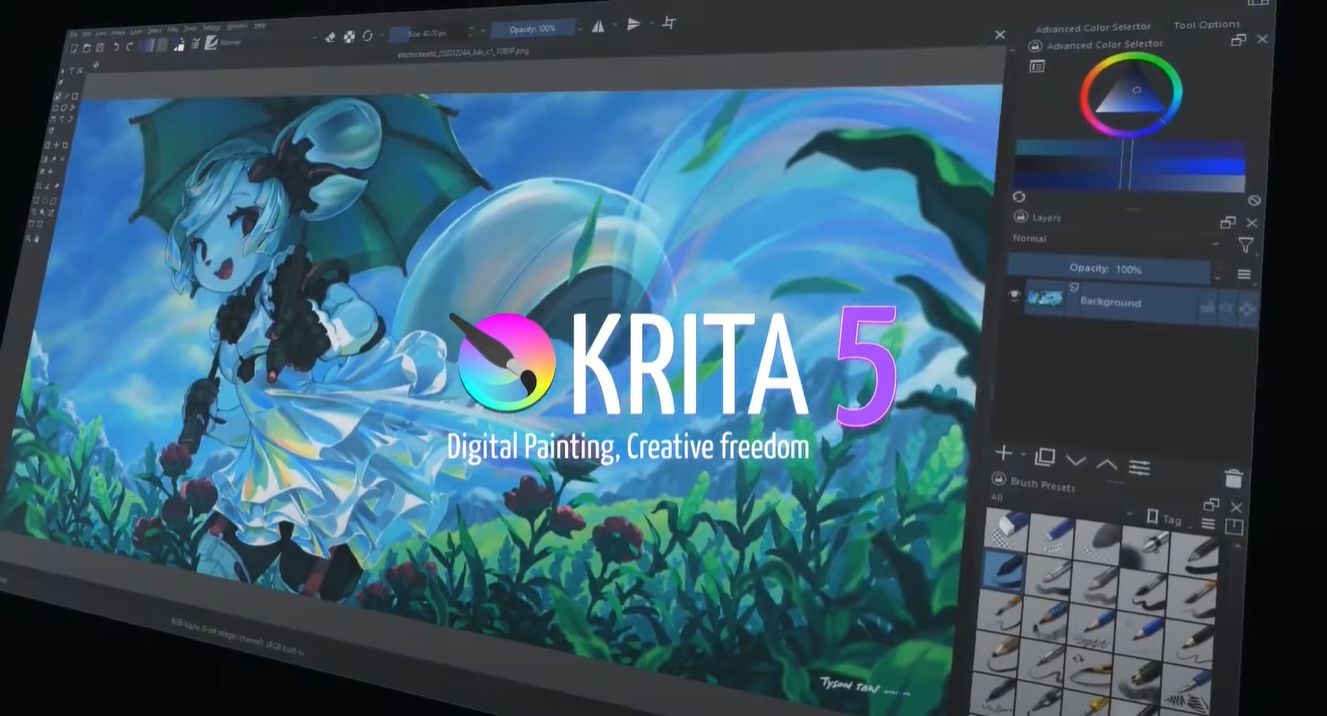
www.krita.org
During this year’s European Codeweek, we’ll facilitate a Trade Card Game (TCG) Design Playshop for young people aged 12+ in partnership with the Youth Development department, City of Hessisch-Lichtenau, Germany.
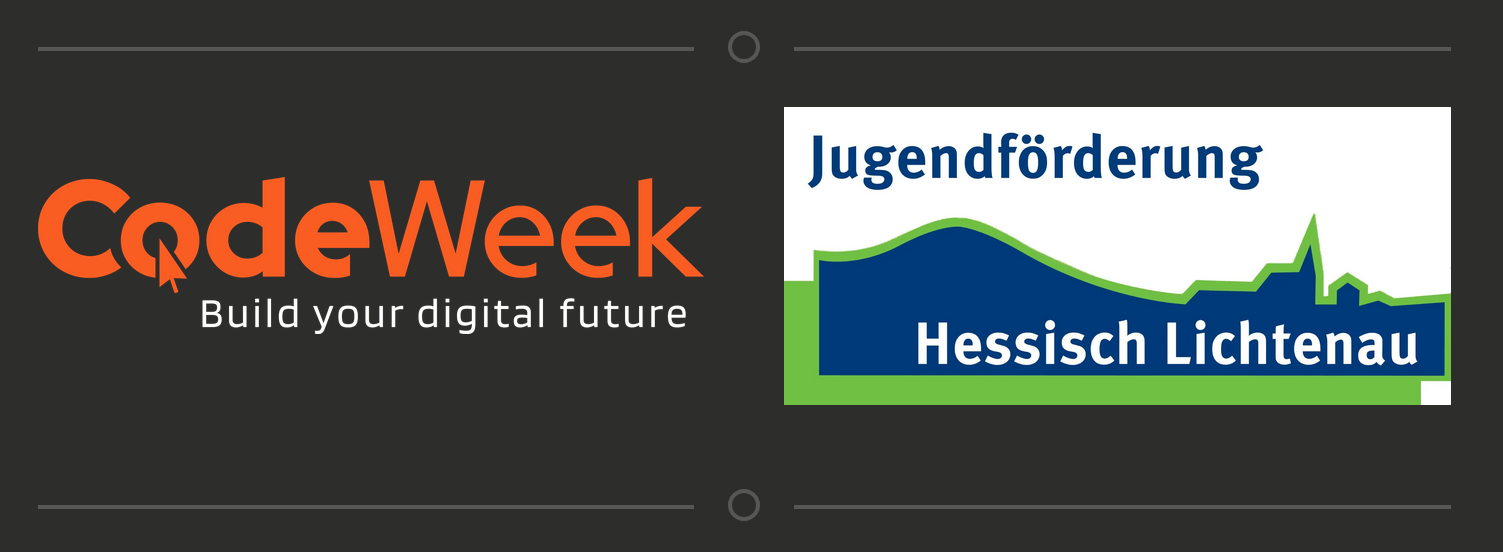
Participants in Germany will also design cards for Busano, Uganda, as part of our international, educational, regenerative food systems & Sustainable Development Goals Trade Card Game: “re:gen fsys.”
-
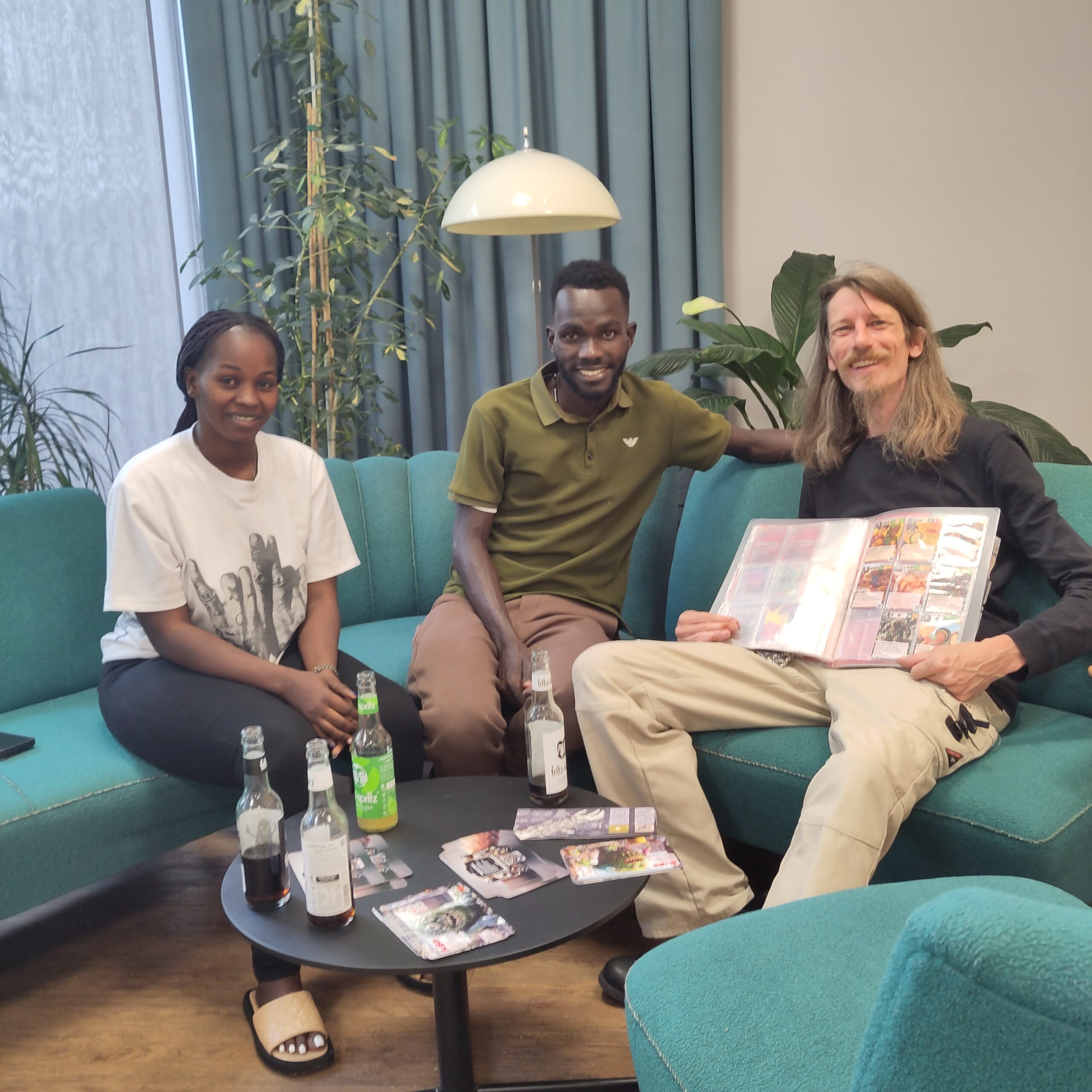
IMG_20250715_161239
-
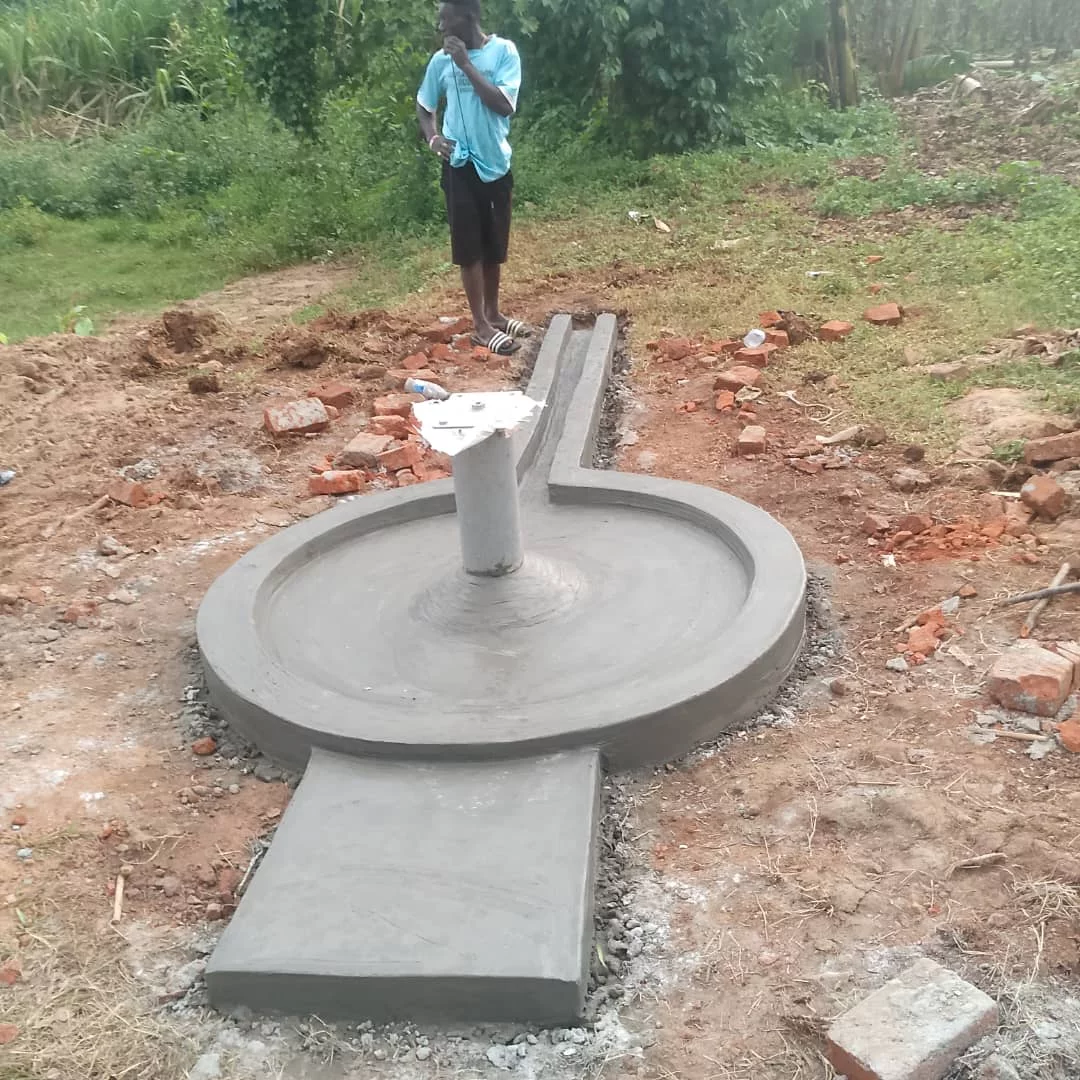
Brunnen-betoniert-1ba2e08f
-
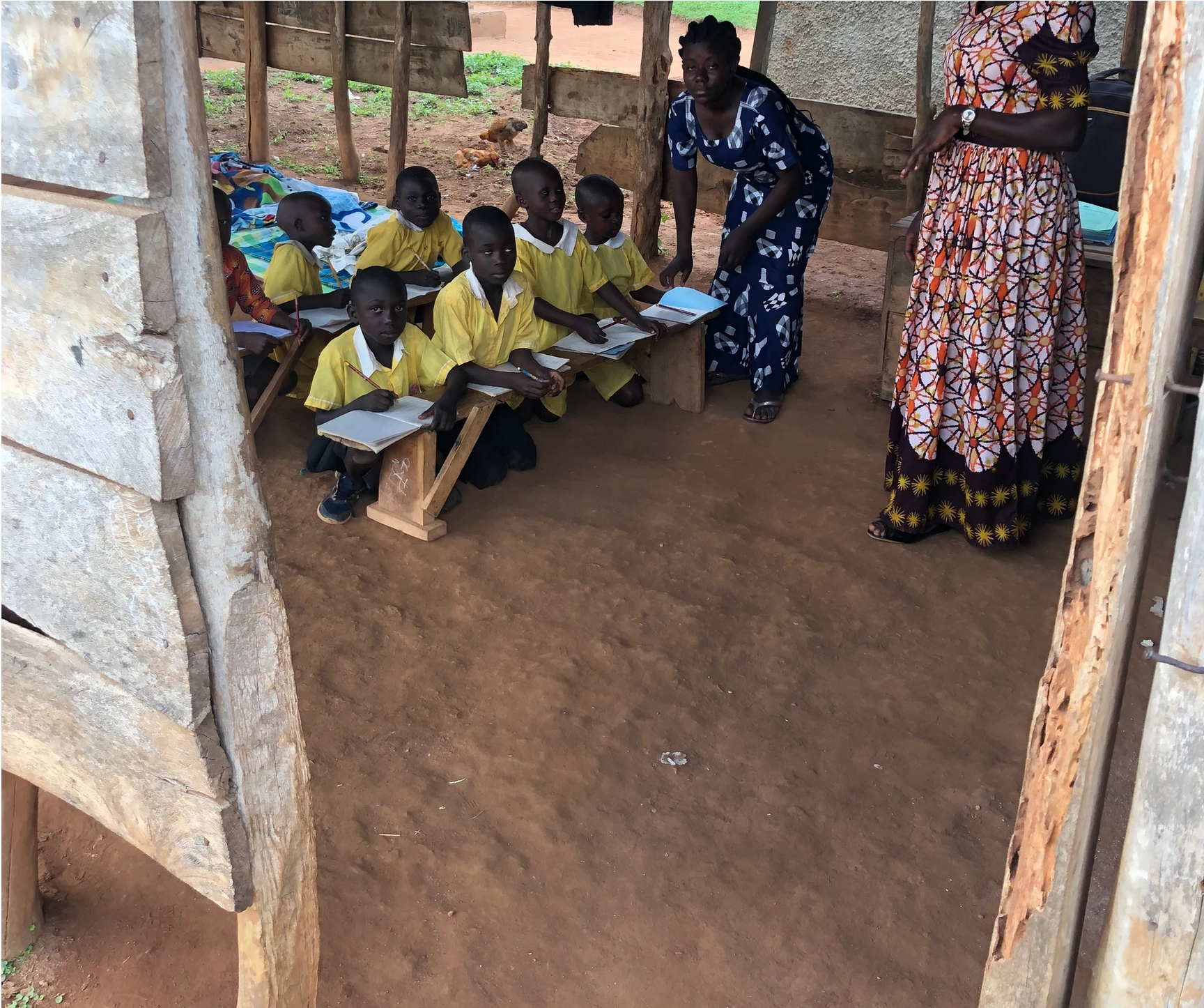
Screenshot-2025-01-29-at-10-28-37-Projekt-Friends-for-Busano-e.V-79505a96
Before our Autumn Holiday Playshop, participants and partners in the village of Nawanyago, Uganda, will conceptualize relevant “Quests”—real-world actions for regenerative food systems, tailored to their local context. Since the village currently lacks stable electricity, internet, and public/school computers, our German participants will connect and step in (until we can cooperatively provide the same access to tools to people in Nawanyago). We’re looking forward to a creative, joyful, and playful time with card design, bridging Europe and Africa 🎨✨
To learn more about the Initiative
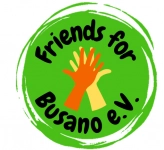
back to Table of Content
We are running on Open-Source – Full Stack!
-

Lets us serve you with our Recipe and Ingredients for Open-Source Digital Sovereignty and the tools, we are working with.
-
Open-source software fosters our collaboration by reducing reliance on proprietary, usually US corporate solutions, ensuring financial independence and data sovereignty while supporting Open Development Communities
-
Cloud Infrastructure
Replacing: Office365, Teams, Google Workspace, Zoom, etc.
www.nextcloud.com
-
Operating System
replacing Microsoft Windows
POP! Linux based on Ubuntu
system76.com/pop/
-
Office
replacing Microsoft Office
www.libreoffice.org
-
Graphic Design
Replacing: Adobe Photoshop
www.krita.org
-
AI Assistant
Replacing ChatGPT / Gemini, etc.
docs.mistral.ai
-
Websites
WordPress
UIkit
Relevant Plugins
www.wordpress.org
-
Web Server
Garden Linux / Docker Setup
Powered by renewable Energies
Proudly hosted on Mittwald:
www.mittwald.de
back to Table of Content
There seems to be so much work and resources flow into the project. How do we finance “ktopia” and the development of the food systems game fsys? How do we guarantee responsibility for Health and Youth Protection Policies?
Open Finance & our Fiscal Host
A Needs & Contribution based model ++ Full Public transparency of all financial transactions and conscious policies in due diligence ++ & The Social Change Nest
The wonderful side effect of working with Gaming and narrative Story Worlds in Education is, that our Organization can be seriously playful all the way and courageously experiment with different ways of doing things.
We are a circle of freelancers and partners, identifying as Ktopia Core Contributors.
We work without hierarchy — no top-down, no bottom-up — only cooperation from all directions of a moving circle.
Each of us is free and responsible, equal in voice, and trusted to lead in our domain.
We nurture the soil of trust through daily and weekly individual and team practice.
We do not have to play by the rules and language of The Market as we are independent — rooted in the Common Good Sector, connected, yet independent from the Market and Governance sector.
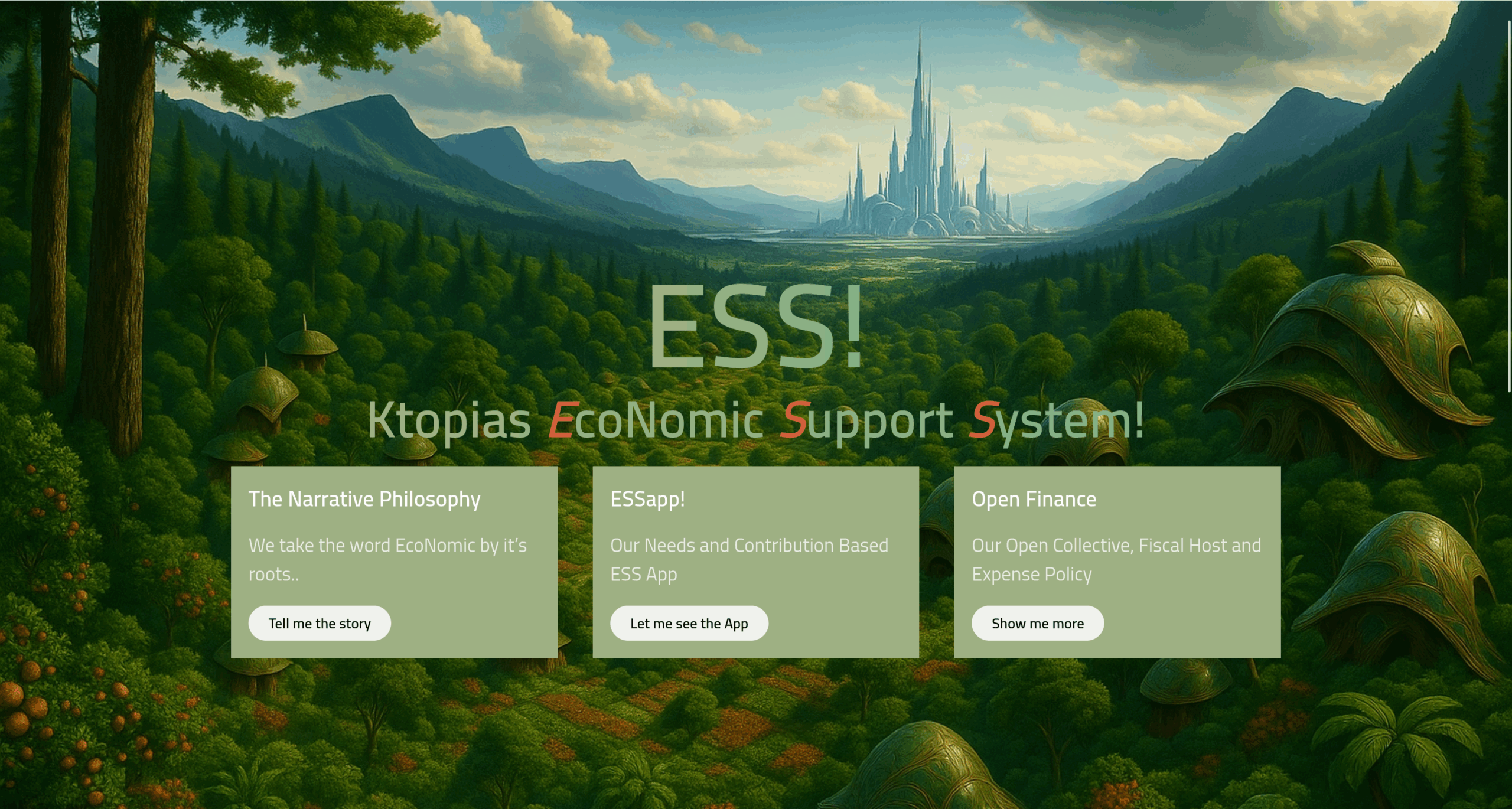
The Social Change Nest is also key to our experimental “Economic Support System”
We take the word EcoNomy by it’s roots! Eco = Oikos, our shared home, household: our living Planet.
EcoLogy nutures the Logos of Oikos – how our living home expresses in diverse life forms.
EcoMene grows Menos – relational community with “the whole inhabited earth”
EcoNomy flows Nomos – resources among members of the whole guided by nature laws, lores and principles
Pragmatic Utopias and self-fulfilling prophecies are our expertise. We may be playful Dreamers in Game World Narratives, yet—as we can see by now—we’ve also planted very solid manifestations in pragmatic, grounded realities.
back to Table of Content
Social Innovation! And here we introduce our next Ally: the Catalyst Now! Network of Social Innovators.
Catalyst Now is a dynamic global movement of social innovators transforming systems and driving sustainable change to advance the UN Sustainable Development Goals worldwide. We unite social innovators, social entrepreneurs, civic society, funders, private sector leaders, academia, and governments to create lasting systemic change through collaborative action.
The co-creative mindset, spirit of generosity, humble audacity, collaborative leadership, and nature with people at the centre as core values resonate deeply with our own. As we have been collaborating with Catalyst Now members around the world in the last months, we could witness the values lived in co-creative action.
Ibrahim had already been a long time member of Catalyst Now. André has been selected by the committee in July 2025 as an individual as well as “Ambassador of Ktopia” .
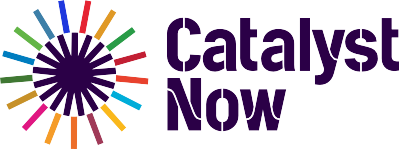
back to Table of Content
One more thing…. before this long article and case study comes to an end…

You might have spotted a strange world map projection in our Articles Header Image. Is it the Map of another Fantasy Planet although it looks like ours in many parts ?
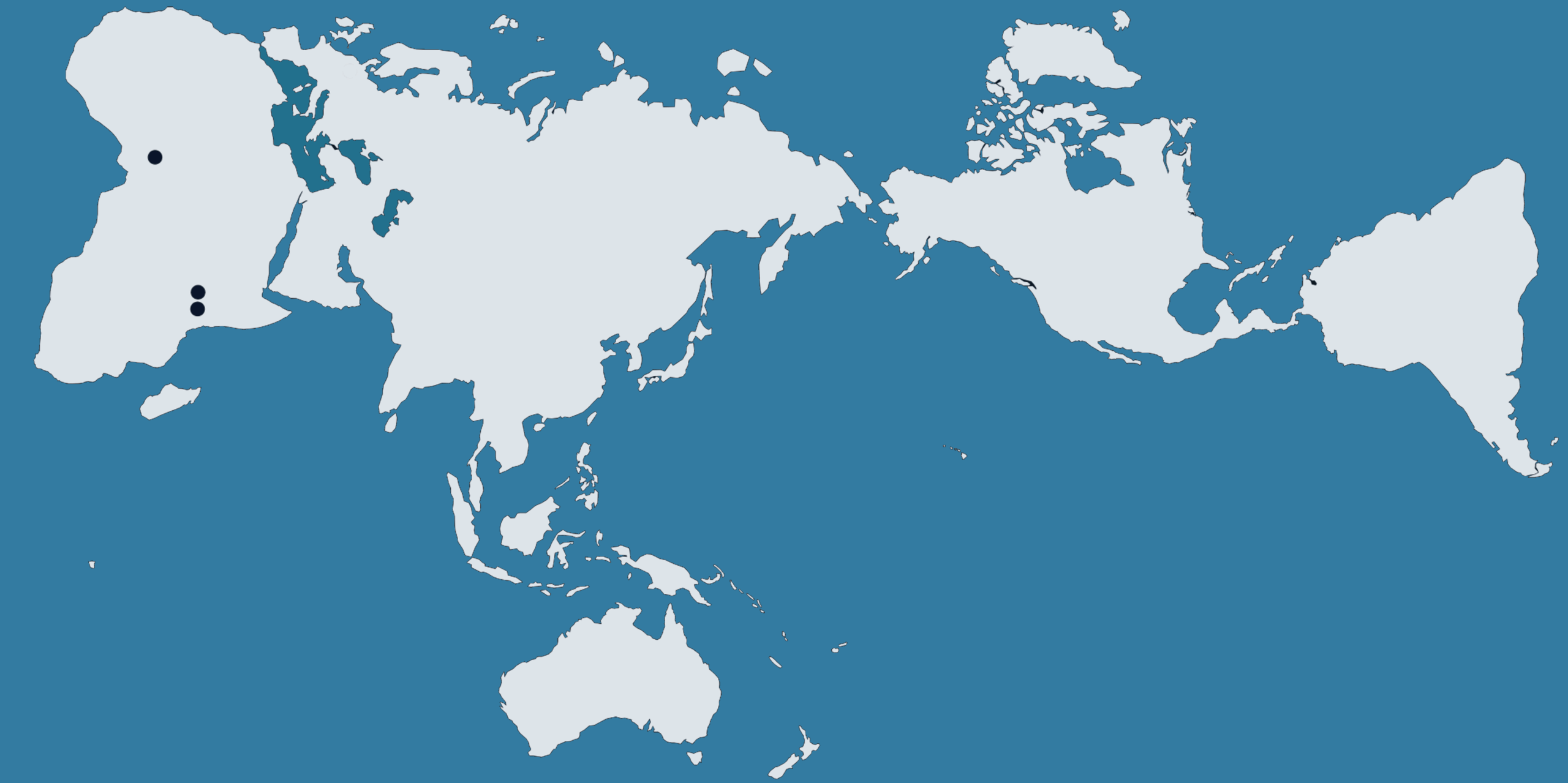
Implementing a Different, More Precise World Map Projection for Our Africa-Europe Collaborations
A world map also projects a worldview. It seems we have taken our common world (map) view for granted—almost like a natural law. This is just how our planet looks on a 2D map, right? Here is the Global South, here we are in the North. This is “The West,” the Middle East, the Far East, south this and north that.
The Mercator Map from the 16th century has been super smart for Europe-centered sea navigation—but it is no longer suitable to reflect and project our world today. It tilts and distorts the true size of continents, making — for example — Europe look disproportionately large and centered.
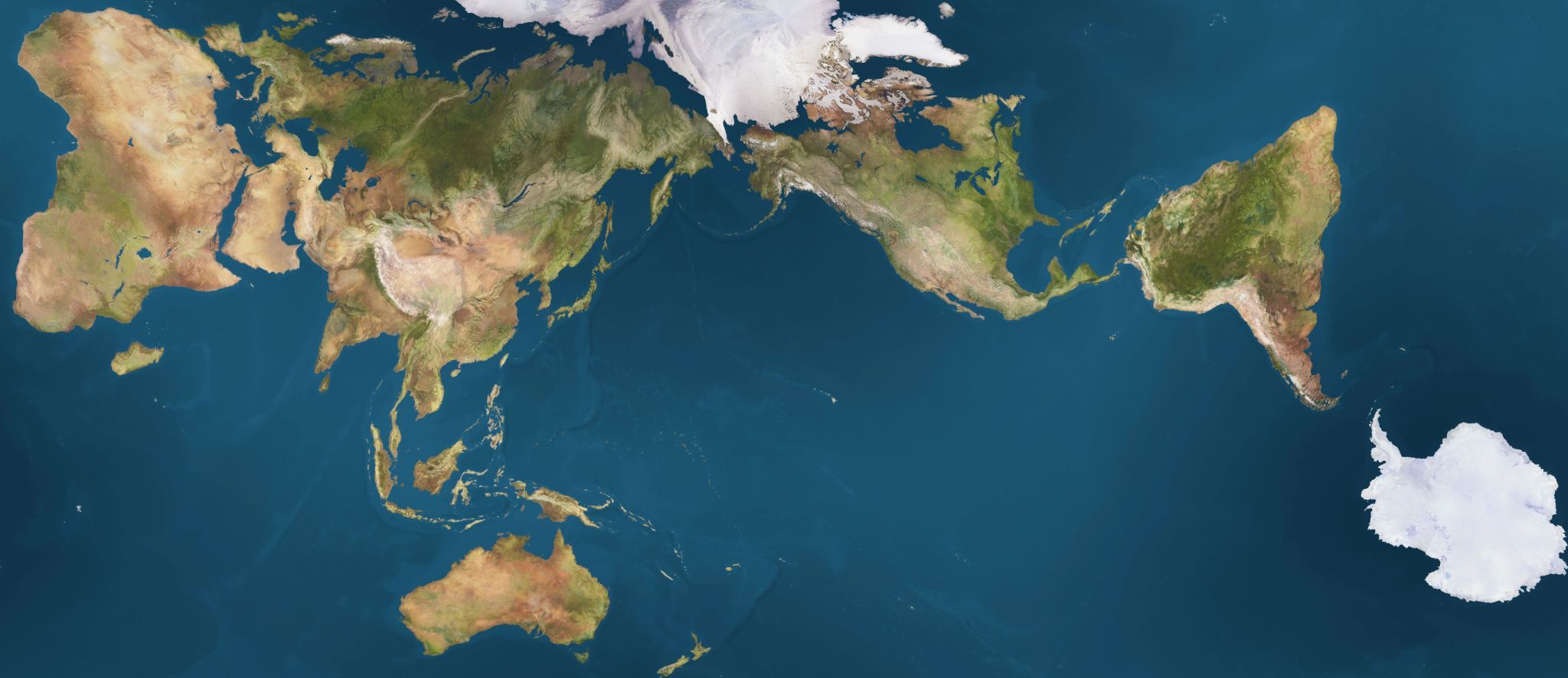
We programmed our own app, imported a collection of all Biomes (WWF Terrestrial Ecoregions dataset ) and mapped them above our Map as our coordinate system is – of cause – 100% compatible with “our” map. No human borders – just the natural Borders of Biomes and ecoregions – the diverse conditions for food systems, they provide.
-
The map is made by equally dividing a spherical surface into 96 triangles, transferring it to a tetrahedron while maintaining area proportions, and unfolding it in the form of a rectangle: it is a polyhedral map projection. The map substantially preserves sizes and shapes of all continents and oceans while it reduces distortions of their shapes, as inspired by the Dymaxion map.
-
The AuthaGraph world map can be tiled in any direction without visible seams. From this map-tiling, a new world map with triangular, rectangular or a parallelogram’s outline can be framed with various regions at its center. This tessellation allows for depicting temporal themes, such as a satellite’s long-term movement around the Earth in a continuous line.”
-
We attempt to grow ecosocial Products as Open Educational Resources for the Common Good in fresh ways of Organic Connections within a different World View of the same Planet!
back to Table of Content
Epilogue
Since we met at the CoFSA Alliance Gathering in June—a mere three months ago—our collaborative Project Plant has grown beautifully and thrived. It is the nutritious soil of open partnerships, of conscious relationships, we a grateful for.
It is the fruitfulness of constant prototyping, the generous public sharing of seeds, tools and foundational resources, and the richness of diversity—of talents, abilities, passions, and visions united in active missions. And it is the joy of courageous, playful action — one Quest at a time, serving our “Great Quest”:
The Great Quest of growing into a sustainable, regenerative, conscious way of living with each other — in our one, shared Home…
If you resonate with our work and would like to contribute or support us, you can make a donation on our Open Collective Page or learn more about contributing on our Coop Page. Thank you! 🙂
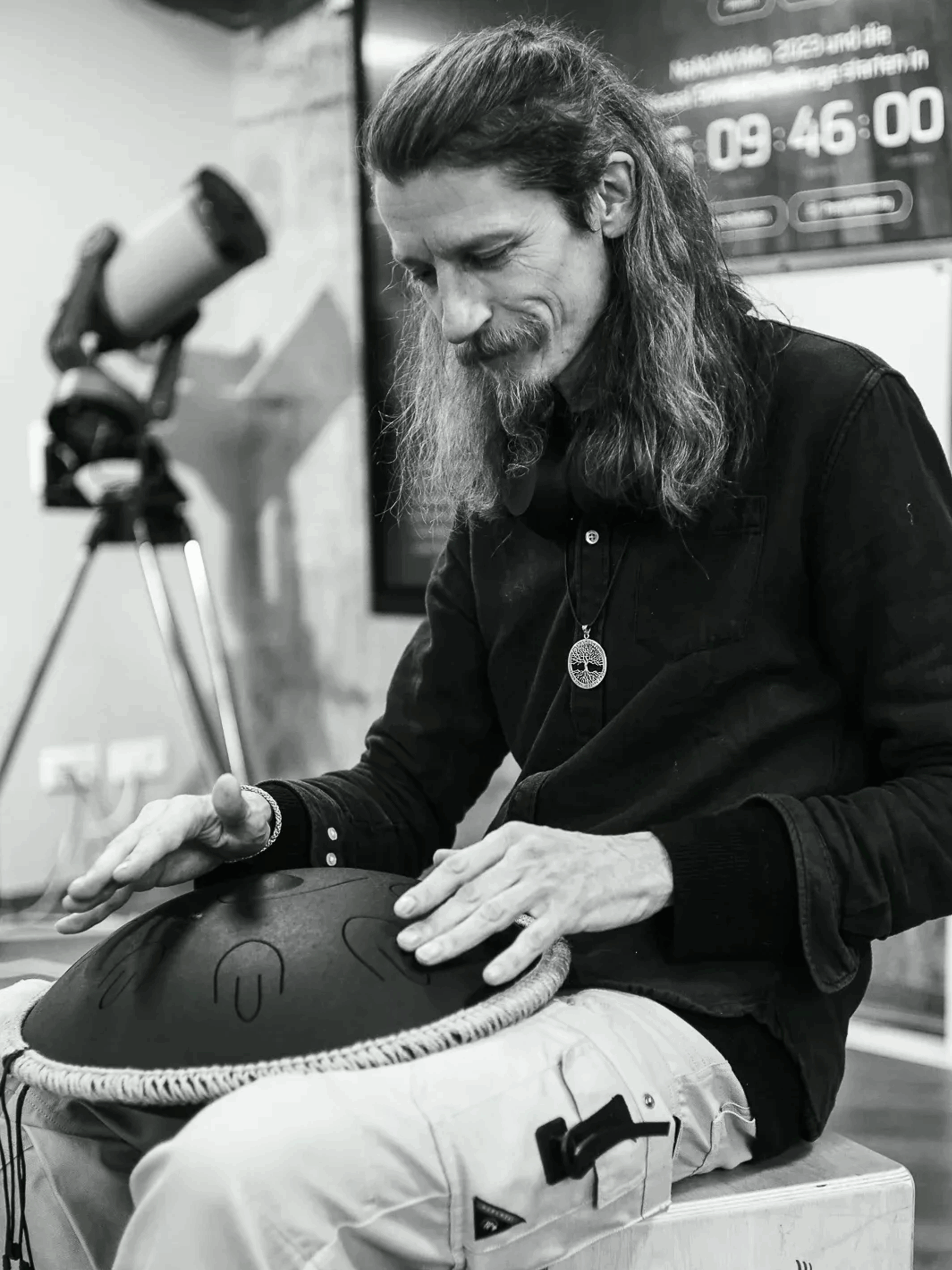
André Boeing
Author & Article Designer
I’ve been working at the intersection of the Digital Web, Design, Performance Art, Mindfulness and Education in Europe and California for more then 30 years now. These days I am passionate about playful, gameful, narrative, mythic approaches in Education for Sustainable Development with a special focus on Regenerative and Conscious Food Systems.
Find me on Linkedin here or via Mail:
andre@ktopia.eu
back to Table of Content
































































